Sept 2013
Sept 2013 sadmin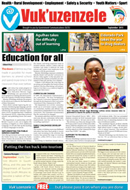
Education for all
Education for all sadminThe dawn of democracy has made it possible for more learners to attend school and spend more time in the classroom than ever before.
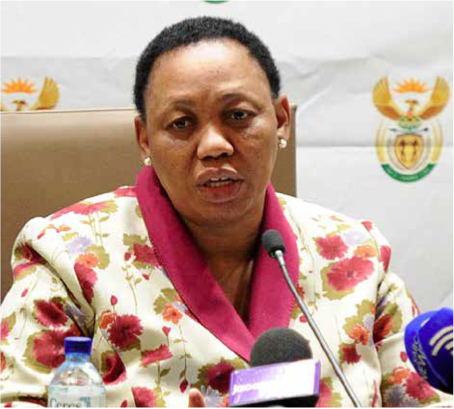 South Africa has made progress in improving the state of education. Basic Education Minister Angie Motshekga says government has made progress in making education accessible to the majority of South African children.
South Africa has made progress in improving the state of education. Basic Education Minister Angie Motshekga says government has made progress in making education accessible to the majority of South African children.
Minister Motshekga attributes the progress to the efforts put in place by the Department of Basic Education.
These efforts include improving the curriculum, introducing sign language, providing feeding schemes and scholar transport, introducing the Annual National Assessment (ANA), broadening Early Childhood Development (ECD), supporting technical schools, and publishing norms and standards.
The department, in partnership with the British Council, is now set to tighten the teaching of English as a First Additional Language. It will also beef up the teaching of African languages at schools.
Implementing the public service charter
Now that government and trade unions in the Public Sector have signed the Public Sector Charter, the productivity of teachers looks set to improve. Among other things, current and former state employees to do business with the government.
Minister Motshekga expresses confidence that the charter will raise the “conscience of the few rotten apples” in the education sec- tor because the majority of teachers are committed to their job and they love children.
“I think it will enhance the work that we are doing and strengthen the hands of those teachers who have been doing well and per- haps to even help us as a nation to begin to appreciate them more.”
Curriculum change
In 2009, the department implemented a new curriculum. “We have strengthened the National Curriculum Statement (NCS) through the development of the Curriculum Assessment Policy Statements (CAPS).”
The department set a review committee made up of curriculum experts, academics, researchers, teachers and officials who conducted an independent review of the old curriculum. The committee recommended that the curriculum be changed.
The minister adds that when her term ends next year, the new curriculum will be fully implemented, and this will be for her “a rewarding experience”.
Early Childhood Development
The number of children receiving childhood education has been fl in recent years and according to the minister, the country has passed the stage of counting numbers within ECD to focus more on quality.
According to Statistics South Africa, General Household Survey 2002 – 2011, children enrolled for ECD increased from 7 per cent in 2002 to 34.5 per cent in 2011. The minister says there are changes in the ECD area as the Council of Education Ministers (CEM) has adopted a new curriculum for ECD. “It is a seamless curriculum in line with the objectives of the National Development Plan (NDP),” she adds.
Support to technical schools
Minister Motshekga expresses concern that the country does not have enough people with technical skills. This has prompted the department to establish a task team to look at ways of attracting learners to the area of technical studies.
The enrolment figures at these schools have declined since 2007. “The technical high school sector is under severe pressure to attract learners. The enrolment figures in 2007 were at 119 000 and, it now stands at 45 000”.
Minister Motshekga says the decline worries her. “It’s an indictment that we have huge projects such as Medupi and we have to import boilers while we have this huge unemployment rate in the country. I think it’s a problem that our system has not been preparing our kids adequately and for our needs as a country.”
She says the task team has already presented draft CAPS for Civil Technology, Electrical Technology and Mechanical Technology.
“These subjects will be supported by technical mathematics, technical science and the current engineering graphics and design” she concluded.
Access to education
On her schooling days, Minister Motshekga says she recalls how the whole of Katlehong had one school and access to education was dependent on when you apply. “The government could not be bothered where the kids studied” she adds.
“Some of us who lived through apartheid knew that access was through a first come first serve basis and if there no space there is no space.”
She adds that despite the progress government has made in making education more accessible, it remains under constant pressure to meet the demands of a growing population.
“This access has put so much pressure on government to build lots of schools and churn out lots of teachers. People who didn’t grow up under apartheid don’t know what that means. It means that we don’t have to run for space, space has to be guaranteed by the state.”
For more information call the Department of Basic Education on 012 357 3000
Putting the fun back into tourism
Putting the fun back into tourism sadminTourism and Heritage Month
September marks Tourism Month in South Africa, and this year the Department of Tourism invites South Africans to become a nation of fun- seekers.
In support of this year’s World Tourism Day theme ‘Tourism and Water - Protecting our common future’, the department has called on South Africans to learn about water, travel, and the tourism industry at large, under the South African theme, ‘Water is fun’.
In line with Tourism Month, the department together with South African Tourism has launched a new domestic tourism campaign called ‘Nothing’s More Fun than a Sho’t Left.’ It encourages more South Africans to go on holiday and explore their country, even for a night or two. It also urges locals to make great memories, spend quality time with loved ones, and to experience new places, new people and new things.
At the official launch of Tourism Month at Amazingwe Lodge in the North West recently, Tourism Minister Marthinus Van Schalkwyk, said excellent tourist arrivals in 2012 had made South Africa an exceptional global destination, and had fast tracked the country to reach its target of becoming one of the 20 top destinations in the world by 2020.
In the past year alone, almost 9.1 million international tourists visited our shores, and 12.5 million South Africans took 25.4 million trips and spent an average of four nights away from home per trip. Domestic Tourism in 2012 also contributed more than R100 million to the country’s Gross Domestic Product (GDP).
Minister Van Schalkwyk said Tourism Month 2013 would herald a new era for domestic tour- ism in South Africa. “It’s an era in which the whole nation will get out there and experience the fun and sheer wonder of a South African holiday.”
Conserving our water
The biggest tourist attraction for the country is our unique and vast land and water resources. The Department of Tourism says our environment and climate is the major draw card for people visiting the country. However, with tourism booming, the country’s water shortage will directly influence and change the tourism market.
This has prompted the Department of Water Affairs to spread awareness about water conservation, especially in the North West, which is the driest province in our water scarce country.
In an attempt to remedy the shortage in the province, Government has also implemented the first phase of the R1.2 billion Pilanesberg water scheme. The project developed in partnership with the mines will provide a further 100 mega litres of water per day for the local municipalities and mines. It will also create 700 direct jobs and 6 000 indirect jobs. The province has also been selected as the destination of choice this month, with affordable and exciting holiday packages available.
Creating tourism jobs
Aside from increasing domestic travel and water conservation, attracting youngsters towards the tourism and hospitality industry is also one of the month’s major priorities. To showcase all the industry has to offer, the department will host the 2013 National Tourism Careers Expo (NTCE) under the theme ‘Explore your World of Tourism’ in East London from 19 to 21 September. The expo's expected to attract more than 10 000 learner’s, tourism students, graduates and educators from across the country, will showcase career opportunities in tourism, especially for women and youth. The expo also aims to drive South Africa’s National Tourism Sector Strategy’s goal of creating 225 000 tourism jobs by 2020, and ensure that there are sufficient numbers of skilled people to fill these positions.
“We want people in tourism to be proud of being in the sector, and events like the National Tourism Careers Expo (NTCE) are a wonderful showcase of the wide possibilities available to learners,” says Tourism Deputy Minister Tokozile Xasa.
Why is the expo important?
The expo, creates a platform for interaction and knowledge. “We, as a department, are thrilled to be part of this extremely successful event and hope that each and every learner, unemployed youth and educator who attends takes the opportunity to make it happen,” says Deputy Minister Xasa.
So hit the road, take advantage of great specials on offer and get involved in the fun this Tourism Month.
For more information, follow @shotleft on Twitter; tweet the #NothingsMoreFun hashtag; go and like shotleft on Facebook; visit the www.shotleft.co.za website; or log onto the mobisite: http://m.shotleft.co.za.
A month to celebrate our rich heritage
A month to celebrate our rich heritage sadminTourism and Heritage Month
September is a month to reflect on and celebrate South Africa’s heritage resources.
It is Heritage Month, a time to go out and enjoy music events, dress up in traditional outfits, attend theatrical performances and appreciate South Africa’s rich cultural and natural heritage.
This year, the Department of Arts and Culture has come up with the theme: “Reclaiming, restoring and celebrating our heritage” to encourage South Africans to protect and celebrate their heritage. Some of this heritage has been preserved at some of South Africa’s heritage sites.
The country is home to eight of the 981 World Heritage Sites which are recognized by the United Nations Educational and Scientific Organisation as places of outstanding cultural and historical importance
These sites are Mapungubwe Cultural Landscape in Limpopo, Robben Island in the Western Cape, Cradle of Humankind in Gauteng, the Cape Floral Region in both the Western and Eastern Cape, Vredefort Dome in the Free State, uKhahlamba Drakensberg Park and Isimangaliso Wetland Park in KwaZulu-Natal plus Richtersveld Cultural and Botanical Landscape in the Northern Cape.
The sites offer a diversity and abundance of cultural and natural values that encapsulate the value systems of the country.
Mapungubwe cultural landscape
“The place of wisdom” as Mapungubwe is known is situated in the Limpopo province. The site lies on the open savannah of the Mapungubwe National Park, at the convergence of the Limpopo and Shashe Rivers. It touches the northern border of South Africa, Zimbabwe and Botswana.
This is a site that was populated by a civilized kingdom over 900 years back. Settlements, artefacts and graves of these communities can be seen at the site. It also has a national park where various bird and animal species, including four of the Big 5, roam freely.
For more information contact Mapungubwe: (015) 534 7923/24
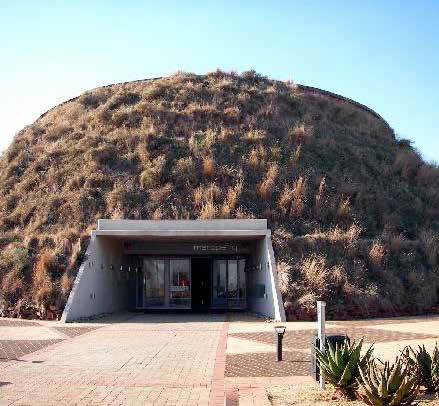 Vredefort Dome
Vredefort Dome
Vredefort Dome was declared a heritage site in 2005. Some two billion years ago a meteorite 10 kilometres in diameter hit the earth about 100km southwest of Johannesburg, creating an enormous impact crater. This area, near the town of Vredefort in the Free State, is known as the Vredefort Dome.
For more information, contact Vredefort Dome: 018 299 5371
Cradle of Humankind
Known in South Africa as the Cradle of Humankind, the region of Sterkfontein, Swartkrans, Kromdraai and environs has one of the world's richest concentrations of hominid fossils, evidence of human evolution over the last 3.5-mil- lion years. It was declared a heritage site in 1999 and 2005. Found in the provinces of Gauteng and North West, the fossil sites cover an area of 47 000 hectares.
For more information contact Cradle of Humankind: 014 577 9000
In addition to these sites, the country has 17 national heritage sites and the country is taking steps to protect more of its heritage sites.
Lieliesleaf Farm
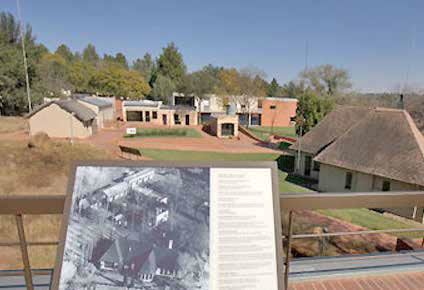 Government has set in motion the process of declaring another historic place in the history of South Africa, Liliesleaf Farm in Rivonia, a heritage site.
Government has set in motion the process of declaring another historic place in the history of South Africa, Liliesleaf Farm in Rivonia, a heritage site.
Speaking at the 50th commemoration of the Liliesleaf Farm raid by the apartheid police President Jacob Zuma said preserving the site would contribute to the on-going process of national healing and the building of a more cohesive society.
During the commemoration, President Zuma said it’s our joint responsibility to tell the story of the farm. “We all have a responsibility to en- sure that the story of Liliesleaf and the Rivonia Trial is told in full for the benefit of current and future generations and that to ensure that the ideas born on this farm live forever”.
Heritage Month 2013
According to the Department of Arts and Culture, this year’s celebration of Heritage Month will be linked to six major objectives.
- To foster social cohesion, nation building, economic development, inclusive citizenship and an end to xenophobia and homophobia.
- To promote unity in diversity among all sectors of the South African society.
- To create awareness through educational programmes, dialogues and public engagements on the importance of unity in our diversity.
- To raise awareness and illustrate the meaningful importance of Liberation Heritage to the youths and “born free” generations.
- To promote active participation through messages of support from political parties represented in Parliament.
- To reaffirm and promote the significance of Liberation Heritage as part of the Cultural Heritage of South Africa.
So join in and help preserve and spread awareness of our heritage resources. They are not just symbols of our past, but they are the foundation for our future as well.
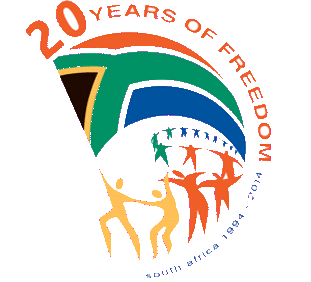 Did you know?
Did you know?
Tourism
- Domestic Tourism accounts for about 4.5 per cent of total employment in South Africa, with almost 600 000 persons employed within the Tourism industry.
- The department’s skills development programme, the Tourism Enterprise Programme (TEP), created further 75 786 jobs with a turnover of R6.4 billion for the country.
- Domestic Tourists contributed to more than R100 million to the Gross Domestic Product (GDP) with 25.4 domestic million trips taken in 2012, valued at R21.8 billion, an increase of R1.6billion from 2011.
- In 1993 the country received just over 3.4 million international arrivals. Over the years international travel increased with 8.3 million arrivals in 2011, and almost 9.1 million international tourists visiting the country in 2012.
- South Africa’s tourist growth rate has grown by 15.1 per cent- and this was recorded as one of the highest growth rates in the world last year.
Source: SA Tourism
Light at the end of the tunnel for blind pensioner
Light at the end of the tunnel for blind pensioner sadminEighty year-old Simon Selepe thought he would never be able to count his pension money when he woke up seeing just darkness one day in 2011.
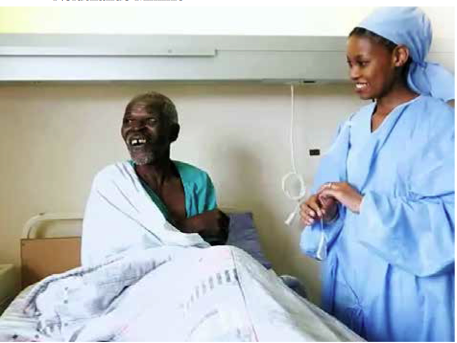 Selepe had cataracts in both eyes - a clouding of the lens inside the eye, which leads to a reduction in vision. It is the most common cause of blindness and is treated with surgery.
Selepe had cataracts in both eyes - a clouding of the lens inside the eye, which leads to a reduction in vision. It is the most common cause of blindness and is treated with surgery.
“One day I woke up and everything was dark and my world changed. I could no longer change my clothes without assistance. It was tough.”
He said over the years he had blurred vision but did nothing to treat it.
Selepe had been blind for about two years before he got help from the KwaZulu-Natal Department of Health this year.
During the day when his grandchildren were at school and his sons at work, he would be left alone at home in Nquthu, some 300 kilometres from Durban.
“It was very dangerous to leave him alone. When he needed to go to the toilet he would sometimes walk past it. We would all take turns to look after him,” says Sipho, Simon’s son.
Selepe explains that when it dawned on him that he was blind, he went to the local traditional healer who told him that there was nothing he could do and advised him to see a doctor. He made a trip to the local Nquthu hospital in May and was informed by the doctors that he had cataracts in both eyes.
Sifiso Gwala, an Optometrist and Programme Manager in the KwaZulu-Natal Department of Health in the Umzinyathi District says, Selepe’s case was urgent because both eyes already had cataracts.
“When we found this we had to act quickly as the department and Selepe was operated within 48 hours. He had to be referred to the Dundee Hospital for the surgery. Although there is a huge backlog of patients that need the operation, Selepe’s case was urgent. We operated on the right eye and after six months we will operate on the left eye. This is how the procedure works,” explains Gwala.
Gwala says Umzinyathi Health District, which is under the KwaZulu-Natal Department of Health, had a programme where they visit pension payout points and screen pensioners for cataracts especially in rural areas.
According to KwaZulu-Natal Health MEC Sibongiseni Dhlomo when delivering the health budget vote he said eye care services saw a total of 106 363 eligible clients, of which 32 127 underwent cataract surgeries over the period 2009 to 2013 along with 2 595 glaucoma surgeries completed and a total of 242 136 refraction defects corrected.
The jolly Selepe says he did not believe that he would see again and he was not afraid when he was told that he needed to undergo surgery. “I remember when the doctor shone the light on my eyes and asked if I could see the torch – I could not see anything.”
He said when the doctor had finished operating him, he could not believe that he could see the light.
Sipho said the family was very grateful to the government for assisting his father. “There is help within government departments if you come closer to find the assistance.”
Selepe joked by saying he could now count his own pension money without the assistance of his grandchildren.
Selepe’s operation was made possible by the money that taxpayers pay to the government.
September is also Eye Care Awareness Month.
Kwazulu-Natal Department of Health call: 033 395 211
Meeting health needs of the nation
Meeting health needs of the nation sadminWhen Kgopotso Molobela climbed the podium to receive his nursing diploma, he felt confident that he finally had a qualification that would guarantee him a fulfilling job.
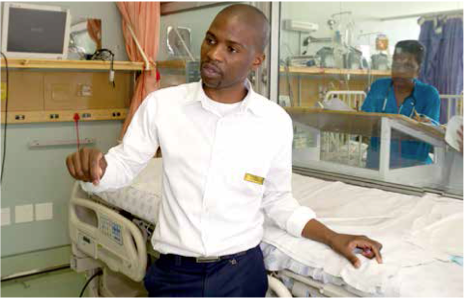 The 29 year old Molobela of Soweto had enrolled for a Diploma in General Nursing, Psychiatry, Community Nursing and Midwifery after being unemployed for four years. Armed with a Diploma in Accounting from the Tshwane University of Technology, he had scoured newspapers and the internet for jobs, without luck.
The 29 year old Molobela of Soweto had enrolled for a Diploma in General Nursing, Psychiatry, Community Nursing and Midwifery after being unemployed for four years. Armed with a Diploma in Accounting from the Tshwane University of Technology, he had scoured newspapers and the internet for jobs, without luck.
Molobela joined 700 other graduates from the University of Johannesburg, University of Witwatersrand and the Baragwanath Nursing College on the day, to become a Professional Nurse.
He had registered for the course in 2009 after a friend had informed him about a scholarship offered by the Department of Health for people interested in becoming nurses. He learned that while studying throughout the four-year course, he also got on-the-job training accompanied by a stipend.
He says even though he studied Accounting, his first passion was to care for other people. “The part I like most about my job is nursing a patient back to health. It’s very fulfilling.”
He also commended the way the course was structured because the tuition is free and students get on the job training in all sections of the hospital.
“As a nurse you are in charge of the patient and do everything for them and you are accountable for them.”
Gauteng Health MEC Hope Papo said South Africa and the rest of the world has a shortage of health professionals, especially professional nurses. This has resulted in serious challenges for health care all over the world. The increasing burden of disease has compounded this challenge.
Papo said there was a shortage of over 4 million health workers globally, including 1 million in the African continent.
According to the South African Nurses Council’s website in 2012 there were 248 736 nurses in the country.
Popo said his department made a conscious policy decision to increase nurse production by 20 per cent with effect from the beginning of January 2005.
The MEC added that the policy decision had to be supported by appropriate budget allocations. Investment in nursing education increased from R173 million in 2005, to over R700 million in 2013.
He said it cost about R140 000 to train one professional nurse per year.
“Since 2004 we have produced 12, 813 nurses in all categories such as Specialist nurses, Professional Nurses, Enrolled Nurses and Auxiliary Nurses. We have a total of 57 Professional Nurses currently registered for the one year diploma in Midwifery and they should be available to work in the midwifery units by October as they are on study leave from their employing institutions.” He appealed to the graduates that they should not chase away any patients especially pregnant women.
“My message therefore is that as you enter the health care system and represent the aspirations of the President, the Minister of Health and the people of South Africa; your healing hands and your caring heart will contribute immensely to achieving the goals that have been set.”
This message went down well with Molobela, who said he was ready to serve his patients with compassion and understanding.
“I want to be an agent of change in this profession. In my group at college we had a motto that said ‘nothing but the best’. Our goal is to change the attitude and not to shout at patients and to show compassion and feel their pain.”
Molobela praised the government for giving him an opportunity to realize his potential. “The Department of Health is giving us a very good opportunity. It’s very expensive to do this course at University and pay for yourself. I am very grateful to the department because I can now work in any section of the hospital.”
He says he feels at home stabilizing patients in the Intensive Care Unit.
 Did you know?
Did you know?
Health
Since 1994, South Africa is making commendable progress to improve the health status of the nation.
- In management of HIV and Aids epidemic, South Africa has the largest ARV programmes, with approximately 2 million people on treatment.
- Infant mortality and under-5 mortality have decreased from 30 and 42 per 1 000 live births in 2011 respectively, exceeding the national targets of 36 and 50 per 1 000 live births by 2014.
- National TB cure rate has improved gradually over the past years reaching 73% in 2011.
- Life expectancy, Rapid Mortality Surveillance System shows that South Africa’s live expectancy has increased to 60 years, exceeding SA 2014 target.
Source: Development Indicators Report, 2013
New school brings modernity to Madiba’s village
New school brings modernity to Madiba’s village sadminA brand-new school of science and technology promises to be a centre of excellence in and around Mvezo Village in the Eastern Cape - the birthplace of former President Nelson Mandela
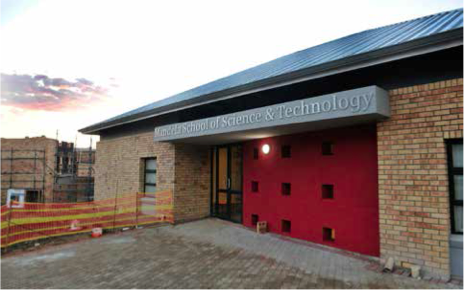 The R100 million Mandela School of Science & Technology is one of the country’s biggest private-public partnerships, punting government's message that together we can do more. Heeding to the call, is engineering and electronics giant Siemens, who partnered up with the Mvezo Development Trust, the De of Science and Technology to create a school specialised in Science and Technology.
The R100 million Mandela School of Science & Technology is one of the country’s biggest private-public partnerships, punting government's message that together we can do more. Heeding to the call, is engineering and electronics giant Siemens, who partnered up with the Mvezo Development Trust, the De of Science and Technology to create a school specialised in Science and Technology.
The school, which boasts 25 classrooms with a capacity to accommodate 700 learners will open its doors in January 2014 as the first high school in the area. Previously, learners had to move to other areas to complete their higher education or be forced to drop out of school. Now they don’t have to, thanks to former President Mandela’s dream of building the first high school in his former village.
The new school is informed by Mandela’s belief that education is a powerful weapon that can be used to change the world. Jumping on board to make his dream a reality was Siemens global President and Chief Executive Officer Peter Loescher. After officially meeting Mandela and hearing his vision, the project was a done deal.
Construction of the new school began in equipped with building skills to work on the project. Great progress has been made with the hall, the admin block, the resource centre and sports centre already completed.
To make the school environmental friendly, wind and solar energy panels have been installed and energy efficient lighting will be used, among others.
As part of its investment and commitment to the success of the school, Siemens will con- tribute towards the school’s operational and maintenance costs for three years.
The school aims to produce graduates who will take up careers in science and engineering. Learners will thus have to do engineering, science, technology or agriculture from Grade 10 to 12. The school will begin its intake in 2014 with learners from Grades 8 to 10, and will be at full capacity by 2016, admitting students from Grades 8 to 12.
According to Head of the Royal House of intake in 2014 with learners from Grades 8 to 10, and will be at full capacity by 2016, admit- ting students from Grades 8 to 12.
According to Head of the Royal House of Council, Nkosi Zwelivelile Mandela, who is also a grandson of Nelson Mandela, learners will be drawn from some 22 feeder schools in the area. “This contribution by Siemens of the new Mandela School of Science & Technology is easily the most significant investment in education that this area has ever seen. This initiative will change the lives of this community forever.”
“We need more companies like Siemens to work with us so that young learners can build study paths and careers in science, engineering, technology and related fields,” says Nosipho Skenjana, Chief Directorate: Institutional Management, Development and Governance at the Eastern Cape Department of Education.
Apply now for tertiary education
Apply now for tertiary education sadminIf you are a matriculant intending to pursue tertiary education next year, you must apply now to a tertiary institution of your choice.
 This is the message from the Deputy Minister of Higher Education and Training, Mduduzi Manana, to the class of 2013.
This is the message from the Deputy Minister of Higher Education and Training, Mduduzi Manana, to the class of 2013.
The closing date for most higher education institutions is 30 September 2013.
Deputy Minister Manana has called on learners in Grade 12 to make their career choices and act now to realize their dreams. “You must apply to get into an institution that offers a programme of your choice.”
Applying on time improves your chances of being admitted to tertiary institutions, said Deputy Minister Manana at the launch of the Apply Now campaign. The campaign provides information about career choices, qualifications and options available for funding studies. “To assist young people to make informed choices, we provide information relating to minimum entry requirements for a variety of careers.”
You can get information by listening to the Khetha Radio Programme which is flighted on 10 SABC African language radio stations, including Afrikaans.
“For example if your home language is Sepedi, you can get a career advice through the Radio Campaign schedule on Thobela FM on Mondays between 21h05 and 21h30." You can also send a ‘Please call me’ to the Career Advice Service centre on 072 204 5056. One of the qualified career advisors will call you back,” the Deputy Minister explained.
Agulhas takes the difficulty out of learning
Agulhas takes the difficulty out of learning sadminIf a child cannot learn the way we teach, maybe we should teach the way they learn. ”This is the motto of the Agulhas School of Skills in Napier in the Overberg region of the Western Cape.
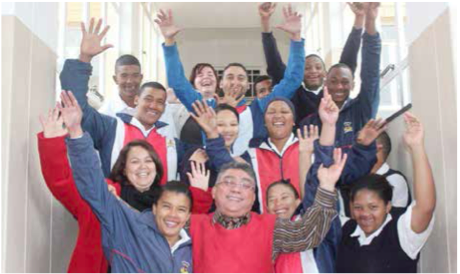 The school, created to accommodate learners with learning difficulties, is one of 18 Schools of Skills opened in the province by the Western Cape Department of Education.
The school, created to accommodate learners with learning difficulties, is one of 18 Schools of Skills opened in the province by the Western Cape Department of Education.
School principal, Andries Botha, says the school strives to meet the needs of its learners. “Learners are all different, they have their own unique talents and skills and their own way of learning. Many learners have specialised educational needs that cannot be addressed in mainstream schools. This is why schools of skills, like the Agulhas School, were created – to address the unique and diverse needs of learners.”
The school currently accommodates 259 learners, including 84 learners who live in the school hostel. Learners are from the neighbouring towns of Kleinmond, Arniston, Grabouw, Caledon, Hawston, Stanford, Gansbaai, Swellendam, Bredasdorp, Struisbaai, Napier, Botrivier, Riviersonderend.
The remaining learners are transported to the school daily. The school currently follows an adapted National Curriculum Statement (NCS) which pairs academic subjects such Afrikaans, Mathematics, English First additional Language, Natural Sciences, Technology and Life Skills, with practical subjects such as Woodwork, Welding, Mixed Farming, Building Construction, Hair Dressing, Hospitality Studies, Educare and Needlework. Learners also participate in job-shadowing where they are invited to visit various local businesses.
Botha says the school gives an opportunity to learners who would otherwise struggle to cope. “They may grasp things slower than others, this does not mean they are low performers, it just means we need to change the approach we use to teach them, these schools of skills do just that.”
School psychologist Gaynor Benjamin says the school has made an impact in restoring the confidence of its learners.
“It is amazing to see how a different approach to teaching can build up a child’s self-esteem. When learners first come to us, they are withdrawn, and feel like under performers because they could not cope in a mainstream school. Once they go through our specialized teaching, you see the changes in them. To see a child smile and feel worthwhile after achieving a great grade is priceless.”
Learners who have difficulties in the classroom are identified by the provincial education district and are placed in these specialised schools of skills. Currently, over 7 000 learners have been placed across the 18 schools of skills in the Western Cape. A further five public schools offer schools of skills services through skills units, accommodating an additional 700 learners.
The Overberg Education District decided to convert the Napier High School into a School of Skills after identifying demand for such a facility in the area.
 Did you know?
Did you know?
Education
- Early Childhood Development (ECD) has grown and grade R enrolment rates have doubled from 300 000 to 705 000 in 2011.
- The percentage of Matric passes has increased from under 60% in 1994 to 73% in 2012.
- Over 23 million workbooks for Grade R to Grade 9 were distributed in 2011
Source: Development Indicators Report, 2013
Land beneficiaries pledge to use land profitably
Land beneficiaries pledge to use land profitably sadminIn an effort to address the legacy of the notorious 1913 Native Land Act, government has redistributed 7.950 million hectares and settled 77 334 lodged claims since 1994.
The latest beneficiaries of the land claims process are the Barolong Boo Mariba Traditional Council who received six farms from North West Premier Thandi Modise recently.
The council says it will profitably use the six farms it received as compensation for the land that was taken from them through the notorious 1913 Natives’ Land Act.
The farms, valued at R60 million, were handed over to the community by North West Premier Thandi Modise at Dalyspan Farm near Mabule in Ratlou Local Municipality.
Speaking on behalf of the traditional council, Kgosi Kopano Lekoko said he was thankful to the government for negotiating for the land on their behalf.
“We are thankful to the ANC-led government that the land was being returned without bloodshed. There are many farms in the land that we have claimed. So far, only six farms have been returned.
“We owe it to the government to demonstrate that we will use it profitably to feed our people, the country and the international market. The work on the farm begins as soon as this celebration ends,” said Kgosi Lekoko.
Community member Olebogeng More, 62, said it had been a long wait and the handover showed that patience is a virtue. “We are going to safeguard the land of our forefathers. Our cattle will no longer starve. We are back on course after many years of oppression and land dispossession. Our dignity will be restored.”
Tshenolo Tlhogi, 63, said: “We will now be able to sleep. To us, the land is an important asset but it is also more than just a commodity, it’s about our identity.”
Kobus Odendaal, 77, who bought the Dalyspan farm seven years ago from another farmer, said he and his wife Susan were very happy for the community, although they will always miss the good life they had at the farm. “It was a very good farm, very productive.”
Modise urged the traditional council to use the land fruitfully and preserve it for future generations.
“Never … again must this country experience some of the things that many of us are still reeling from. Hold on to the land we return to you today. Don’t allow people to steal it. We must preserve our land for our children.”
Modise, also toured the farms to inspect facilities. She said her administration is looking at various models to make life easy for farming communities and people in rural areas in general.
She said in addition to availing training opportunities through the Kgora Training Centre, which seeks to equip subsistence and aspirant farmers with farming skills, she planned to lead a delegation to Thailand, where they will investigate, among others, solar opportunities to make it easy for people in far-flung areas to have cheaper electricity.
For more information cal the Department of Land and Rural Development on: 012 312 8911
Did you know? 
Rural development
- Since 1994 government has redistributed 7.950 million hectares (or 30%) of the 2014 target to redistribute 24.5 million hectares of the country’s arable land to the previously disadvantaged.
- Since the inception of the restitution programme in 1995, 79 696 claims had been lodged and 77 334 had been settled
- Of the claims settled 59 758 had been final-
Source: Development Indicators Report, 2013
Mother hen of the Cape
Mother hen of the Cape sadminYears ago, Wadea Jappie bought a piece of land in Schaapkraal, Philippi, where her kids could play and she could also start a small vegetable garden to sustain her family. Today she is one of the biggest emerging crop and egg farmers supplying over a 1000 eggs and vegetables daily to a number of well-known restaurants in the Western Cape.
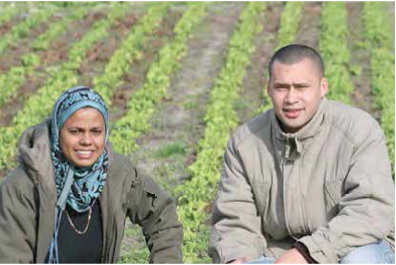 However, farming was never a dream of the former housewife. Her husband, Achmat bought a 1,6hectare small holding farm in 2002, and she started a vegetable garden to enable her to put food on the table for her husband and six children.
However, farming was never a dream of the former housewife. Her husband, Achmat bought a 1,6hectare small holding farm in 2002, and she started a vegetable garden to enable her to put food on the table for her husband and six children.
“I started cleaning the fi s just to sustain myself in the kitchen. But the vegetable garden soon became bigger.”
Jappie then learned how to farm, but still insists that she and her son, Nabeel Brinkhuys, who is the foreman of the family’s homestead, are first-generation farmers.
A year later, she bought 100 laying hens. They cost R40 to R45 each, so Jappie decided to start small. Soon word got around and she started supplying eggs to home and industries nearby. Having saved enough, she decided to expand and bought 400 more chickens.
Despite her success today, she still supplies her first customers who have paved the way for her success.
Over the next few years, the family managed to purchase more chickens and expanded their production to 4 000 laying hens. Success finally paid off in 2006 when Jappie was named Top Female Producer for Informal Markets in the Western Cape.
But in 2008, Jappie suffered a setback when a heat-wave killed over 1 500 of her chickens, and a few months later, a winter storm blew off the roof of their chicken coop. Coming to Jappie’s rescue was the Western Cape Department of Agriculture, who stepped in and supplied the family with 1 280 new chickens.
Today, Jappie’s chickens produce an average of 3 000 eggs daily, which is delivered to top restaurants, including Balducci’s in Cape Town’s famous Waterfront district, Mugg & Bean at Van- gate Mall, Nino’s at Canal Walk, Spur in Ottery and several coffee shops. Jappie says, “We just phoned the restaurants and asked whether we could supply them with eggs and they agreed.” Not wanting to put all her eggs in one basket, she also expanded her vegetable garden.
She received guidance from the provincial government once again, who taught her about seasonal crop production, and soil analysis. The department even assisted Jappie to test her crop soil and sent her and her son on workshops to learn more about vegetable production, fertilisers, pesticides and financial management.
During the warmer months, Jappie’s cooperative Chamomile Farming, plants coriander, chillies, lettuce and peppers, and when it’s colder, they rotate the soil for production of spinach, cabbage and turnips.
One of the biggest customers of the salad crops, is commercial farmer, Ian Grimmbach, who owns Cape Salads, also known as Dew Fresh. He packages the crops and supplies to Woolworths.
Jappie admits that farming is hard work, but also encourages developing farmers not to give up. Her family is her support system with everyone lending a helping hand. Even little kids take turns to weigh, sort and package the eggs after school.
Jappie and Brinkhuys have also employed four permanent workers and two casual workers. Jappie’s advice to prospective egg producers is that you must never allow anyone from another poultry farm to visit your farm. This is called bio-security and prevents chicken diseases from spreading; limit stress inside the chicken house by restricting the movement of people and keeping to the same daily routine; ensure enough ventilation in the chicken house; always have fresh water available for the chickens; feed the chickens once per day; supply a lot of daylight; and ask your customers to return the egg trays to you so that you can reuse them.
Today she is working hard to expand her production to 10 000 laying hens, and has big plans her once small farm.
Western Cape Department of Agriculture call: 021 808 5111
Eldorado Park takes the war to drug dealers
Eldorado Park takes the war to drug dealers sadminEnough is enough! Drug dealers beware! We are taking back our streets and we will fight for the rights of our children!” This is a warning from Eldorado Park parents, who have had enough of drug peddlers and dealers taking over and destroying their children’s lives.
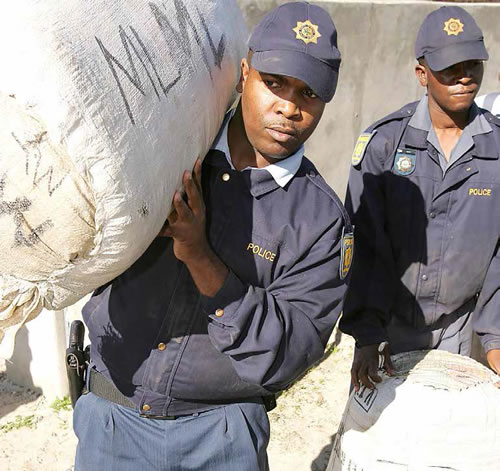 The area came under the spotlight after President Jacob Zuma visited the drug-ridden community this year, following desperate pleas from parents for action to be taken against drug dealers.
The area came under the spotlight after President Jacob Zuma visited the drug-ridden community this year, following desperate pleas from parents for action to be taken against drug dealers.
Following the visit, Government established a Presidential Inter-sectoral Plan in Eldorado Park bringing together the police, the departments of Social Development, Community Safety and Basic Education, as part of a Drug Master Plan to reduce drug use.
Ties have also been strengthened between the police and community members, which has led to almost 1 500 arrests, up to seven kilograms of drugs and more than 600 tablets being seized in just two months.
Thirty seven more police officers have been deployed to the area to intensify policing.
“We are working night and day and over weekends to crack down on drugs, crime and other problems in the community,” says Communication Head of Eldorado Park SAPS, Captain Phillemon Khorombi.
“The only way to win the war against drugs is to fight together - the police, parents, learners, teachers and community members must join hands.”
This call has been heeded by mother of two, Dani Williamson. “We used to blame the police a lot for problems in the community, but if we as parents do not take responsibility for our children, how can we expect others to?”
Williamson, along with a group of parents spoke to Vuk’uzenzele, during a recent visit to the community. “People are no longer afraid to re- port crimes because we know now that the police mean business,” says Eldry Jacobs. “We cannot be afraid of these druglords anymore.”
Reports of drug-related crimes have drastically increased thanks to an anonymous SMS tip-off line 32211 launched by the Eldorado Park SAPS. The tip-offs have led to 25 lolly lounges being shut down in the area. A lolly lounge, explains Capt Khorombi, is the township name for homes where people sell and do drugs. Most of the young drug users are girls, some still in high school. These youngsters get caught up with the wrong group of friends, and bunk school and spend their days in these lolly lounges, whilst their parents think they are still at school.
To combat this, the police have implemented a school monitoring team headed by Constable Natasha Govender. An Adopt-a-Cop programme was introduced at 17 schools in the area, and during school visits and raids, the team confiscated dagga, liquor and mandrax. The Department of Basic Education has also identified nearly 700 learners from high schools to undergo Behavioural Change Educational Camps during school holidays.
Capt Khorombi says the most common drugs used are Crystal Meth, CAT and a concoction called Nyaope. Nyaope is a mixture of heroine, dagga, battery acid, rat poison, ARVs and other dangerous ingredients. Despite Nyaope not being recognised in terms of the Drug Act, it is still very much used.
The departments of Social Development and Community Safety in Gauteng have also run workshops for parents to identify children hooked on drugs.
Signs to look out for
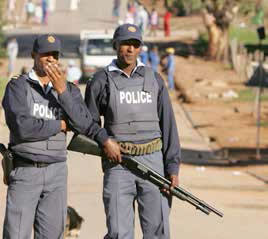 The workshops teach parents to look out for signs of drug use in their children. Symptoms include children becoming withdrawn and isolated, staying in their rooms, losing appetite, or eating too much. Some become violent and aggressive, and keep bad company. “Parents must be aware of where their children are at all times, and who they are hanging out with.”
The workshops teach parents to look out for signs of drug use in their children. Symptoms include children becoming withdrawn and isolated, staying in their rooms, losing appetite, or eating too much. Some become violent and aggressive, and keep bad company. “Parents must be aware of where their children are at all times, and who they are hanging out with.”
The police have also increased their monitoring of the area, conducted raids and random stop and searches on more than 23 000 vehicles. Police have also re-opened 279 cases that had been withdrawn. They have been re- sent to the Senior State Prosecutor, complete with drug lab reports.
The Department of Social Development has also introduced a substance abuse programme in partnership with the Ke-Moja drug prevention programme. Support groups have been established and 15 children sent on a diversion programme.
Gauteng Provincial Commissioner, Lt General Mzwandile Petros, thanked the community for its cooperation. “The com- munity has come forward with information that has assisted the security forces in searching, arresting and seizing drugs in the area. We have extended our focus and have included surrounding areas like Ennerdale, Lenasia, Soweto, Windor and Westbury. These high visibility operations will continue and we appeal for more information from community members.”
People with information on any Drug related activities can anonymously contact Crime Stop at 08600 10 111 or SMS Crime Line at 32211. All information received will be treated as confidential.
 Did you know?
Did you know?
Safety and security
The crime rate is coming down, although it remains at a very high level.
Statistics SA 2012 Victims of Crime Survey (VOCS) showed that 60% of households expressed satisfaction with the manner in which police and courts were doing their work.
Contact Crimes rate per 100 000 of population
|
|
2003/2004
|
2011/2012
|
|
Social Contact Crimes
|
|
|
|
Robbery contact crimes
|
42.7
|
30.9
|
|
Murder
|
64.8
|
29.4
|
|
Attempted murder
|
605.7
|
359.1
|
|
Common assault
|
560.7
|
560.7
|
|
Assault grievous body harm (gbh)
|
142.5
|
127.5
|
|
Sexual offences
|
|
|
|
Robbery contact crimes
|
288.1
|
200.1
|
|
Common robbery
|
206.0
|
104.7
|
Source: Development Indicators Report, 2013
Ex-offender cleans up his act to make money
Ex-offender cleans up his act to make money sadminJuly Melao has moved from being a convicted criminal to being an entrepreneurial crusader for the environment.
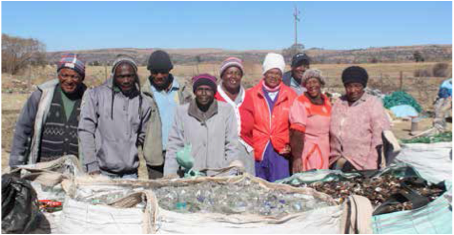 Ladybrand is a semi-rural area about 134 kilometres from Bloemfontein in the Free State, without much socio economic opportunities for its inhabitants.
Ladybrand is a semi-rural area about 134 kilometres from Bloemfontein in the Free State, without much socio economic opportunities for its inhabitants.
Meisie Melao and her son July call their unregistered small business Phahamang Recycling. The business employs three other young people.
July explains that they were in the process of registering the business with the Companies and Intellectual Property Commission (CIPRO).
July was arrested for robbery in 2008 at the age of 19. He says poverty and peer pressure drove him to rob. He was sentenced for two years but got out after a year for good behaviour.
“When I was released from the Kroonstad Correctional Centre, I decided to change my ways and start again. My mother had already started the recycling business in 2008 so I decided to help her run it.”
He explains that their typical day starts at eight in the morning when they go to the local dumping site to collect glass bottles.
“The glass bottles have to be separated into different colours. We group the bottles into the greens, the browns and colourless. We crush the bottles with stones and place them in big bags.”
Phahamang Recycling generates income from selling the crushed glass to a glass company Consol. They have to collect about 30 bags of glass weighing about 40kg each before calling Consol to come and collect the merchandise which make between R7000 to R8000 per 40kg.
There are also other community members who have followed in the footsteps of July and his mother to make a living.
The pair explained that the business is very challenging, especially since they wear no protective gear when they crush and handle broken glass.
In 2010, the pair received training from cellphone network company, MTN, who taught them how to sort out waste. The company also linked the cooperative with Consol who is their main buyer.
July says even though the business is doing well, their future plans include growing the business, having proper premises to work from, buying a vehicle to transport the goods to their main supplier and acquiring proper working machinery.
July, who is also a motivational speaker for other inmates and young people in the com- munity, says it is difficult to live in poverty but it is up to each individual to think of ways to survive.
“While I was in prison, I decided to learn skills like carpentry, horticulture and did level four of adult basic education. The skills I learnt helped me to survive because I also make wreaths for funerals as another business venture on the side. I know it’s difficult to survive without proper education and a stable job but crime does not pay,” concluded July.
Monyetla opens doors of opportunity for unemployed youth
Monyetla opens doors of opportunity for unemployed youth sadminThe Monyetla Work Readiness Programme is opening doors for unemployed young people in the Business Process Services (BPS) sector, also known as the call centre industry.
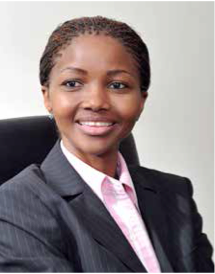 The Monyetla programme, which means opportunities, was launched in 2008 by the Department of Trade and Industry (dti), the National Skills Fund, Business Trust and the Business Process Enterprise South Africa. It is one of Government’s biggest and most successful public-private partnerships and has paved the way for employers to create 7 657 jobs for unemployed youth across the country.
The Monyetla programme, which means opportunities, was launched in 2008 by the Department of Trade and Industry (dti), the National Skills Fund, Business Trust and the Business Process Enterprise South Africa. It is one of Government’s biggest and most successful public-private partnerships and has paved the way for employers to create 7 657 jobs for unemployed youth across the country.
Established as a response to the shortage of skills in the Business Process Services sector, Monyetla targets school leavers, unemployed graduates, women, disabled people and youth between the ages of 18 and 35 years.
Since it was set up , the programme has benefitted 1307 people in the pilot phase, 3350 in the second phase and 3000 in the third phase. Seventy per cent of them managed to get jobs after the training.
Programme Manager Nomzamo Ramutla says in the first phase in 2008, R17.2 million was allocated to train 1000 unemployed young people, but the enrolment exceeded the required number by 307.
Each participating employer receives approximately R20 000 for each unemployed learner they train. In order for a company to become a certified employer of choice, they had to commit to training a minimum of 60 learners and at least 70 per cent of the learners must be given permanent jobs once they have completed the programme.
Each learner was given extensive theoretical and practical training over the 16-week course which also included 160 hours of call centre experience.
The project has seen the Jobs Fund coming into the picture as an additional funder. The funding which is currently allocated by both the Jobs Fund and the National Skills Fund will result in approximately 22 000 young people being trained and a minimum of 70 per cent being employed in the BPS sector by March 2015. Recently, the programme honoured top achievers in an award ceremony held in Midrand. Sabelo Mbhele was named one of the top achievers. Through Monyetla, he has honed his skills and advanced his career as a Human Resources administrator at CCI Call Centres. “The skills that I have gained from the Monyetla Programme have played a crucial role in securing my new position of looking after 240 staff members. I have developed a real love and passion for working with people, making this an ideal role for me. I owe my success to the programme,” he says.
“With my winnings I’m hoping to pursue my Honours Degree in Human Resources, its more than I could ever ask for!”
Mbhele, is one of three top achievers who each won R10 000 in prize money. The other two are Milton Haines of Aegis and Lazarus Makena from the City of Tshwane.
According to Felicity King, of CCI Call Centres, which employed Mbhele fulltime after he completed the programme, the Monyetla Work Readiness Programme had a positive impact on the business. “We have also managed to create permanent employment for many of the learners who successfully completed the program, and we are exceptionally proud of Sabelo Mbhele.”
DTI Director-General, Lionel October, says the programme is a perfect example of how to grow the economy and create employment in the manufacturing and services sectors for years to come. “Monyetla should be taken as a case study, to be expanded to other industries. We need to consider rolling-out this model to other industries like film, manufacturing industries etc.”
Taking advantage of Monyetla
Taking advantage of Monyetla sadminWhen Phumolo Koalane was forced to drop out of the University of Johannesburg during his second year in 2011 because he didn’t have money, the future looked bleak, and his dream of being a Mechanical Engineer was shattered.
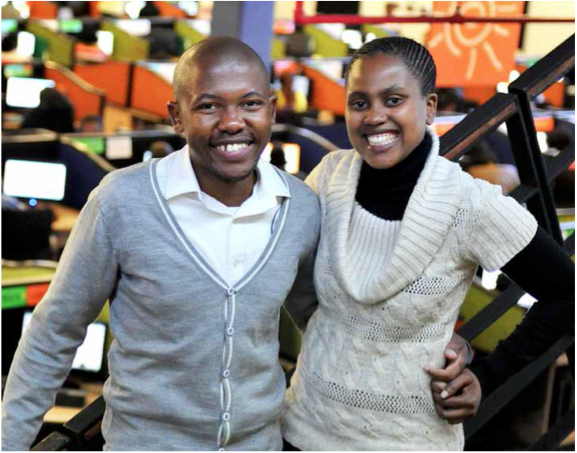 Like many other unemployed young people in Vosloorus, the 22-year-old would wake up in the morning, sit with his friends at a street corner or loiter around the township.
Like many other unemployed young people in Vosloorus, the 22-year-old would wake up in the morning, sit with his friends at a street corner or loiter around the township.
Koalane’s lucky stars started shining on him when his cousin told him that African Bank would be advertising learnerships in a space of a week and he should send his application. He sent his application and he was called for an interview.
“One morning, it was round 09h00 I think, I was still asleep when I got a call from African Bank that I should come for an interview the following day. I almost broke my bed jumping with joy that I had been called for an interview,” he says with a smile. “I came and wrote a psychometric test and I was called again for another interview which I passed.”
Koalane was about to be trained as a call centre agent, benefitting from African Bank’s participation in the Monyetla Work Readiness Programme. The programme is designed to accelerate training for entry level jobs in South Africa’s growing Business Process Outsourcing (BPO) industry popularly known as the Call Centre Industry.
The programme responds to the need to develop local talent and is aimed at matriculants and diploma holders and unemployed young South African citizens between the ages of 18 and 35 years.
It is managed by the Department of Trade and Industry (DTI) and funded through the National Skills Fund. Learners on the programme go through a theoretical (classroom based) training, practical training and on the job experience.
The programme includes a competency assessment and nationally recognised certificates for participants. Participants also receive a monthly stipend which serves as a transport and meal allowance.
Koalane says the stipend goes a long way in assisting at home because he is the only one who is employed. “Being part of this programme has changed my life because now I’m able to take care of my mom and my sister. I didn’t have anything to do and now my life and that of my family has changed” he added. Koalane’s counterpart Yoliswa Mhlongo could also not complete her studies because of lack of funds. The 25-year-old from Matatiele in the Eastern Cape could not complete her Public Relations Management Degree at Durban University of Technology. She says with the stipend she gets from the programme, she intends to register to complete the remaining modules of her degree and she hopes to work for African Bank in the Public Relations department.
African Bank Learnership Coordinator Karmini Pillay says the programme is a good initiative as it combines two important aspects, a qualification and on the job training. “It’s a good experience for them, the programme itself ties up the two most important aspect which is the qualification and work experience and those two are really needed in today’s market.”
Workers restore farm into land of milk and honey
Workers restore farm into land of milk and honey sadminCatherine Chiloane has moved from being a landless farmworker to being a part of land barons.
In 1997, Chiloane, along with 247 other workers at Coromandel farm, faced a threat of losing her job and her home as the farm collapsed.
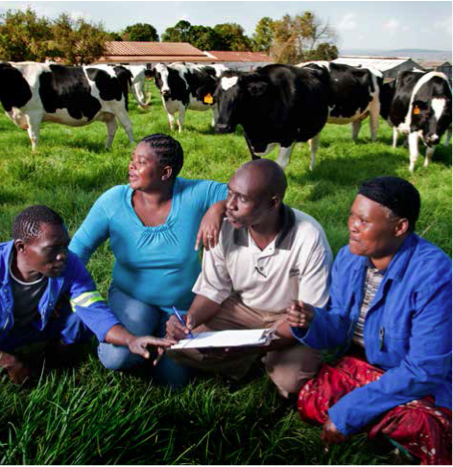 The farm’s future looked bleak as milk and maize prices dropped and cash flow dried up. "I was really scared we would lose everything," Chiloane recalls. "Thank God it didn't end up that way."
The farm’s future looked bleak as milk and maize prices dropped and cash flow dried up. "I was really scared we would lose everything," Chiloane recalls. "Thank God it didn't end up that way."
The iconic 5 800 hectare estate farm which lies in the foothills between Lydenburg and Dullstroom in Mpumalanga, belonged to the late industrialist Sydney Press who assembled the estate from 24 smaller farms in the 1970s.
The Coromandel Estate includes an operational mixed agriculture business and boasts waterfalls, a 300 hectare fully stocked game reserve, stone built stables, 24 mangers' residences, two employee villages, a school, self-catering tourist accommodation, fly fishing, horse riding and an airstrip. The estate also houses a modern dairy with a total herd of 350 prime Holstein cows, 750 hectares of irrigated lands growing maize and beans, 30 hectares of orchards bearing peaches, nectarines and berries together with a packing facility and 1 240 hectares of dry agricultural lands and 1400 hectares grazing and feedlot facilities.
After the farm went into liquidation in 2000, workers on the farm formed a collective to buy it. The workers secured a R11.5 million grant from the Mpumalanga Department of Agriculture, Rural Development and Land Administration and the Land Bank loaned them an additional R11 million. They offered the Press family R15.65-million for the land and fi assets. Administrative Manager Sipho Ngwenyama, says they used the rest of the money to buy movable assets and dairy cows and for maintenance.
In 2002 , the workers, trading as the Coromandel Farmers Trust, fi took ownership of the farm. With help from the Eskom Development Foundation, the workers restored the farm, making it viable again.
The aim was to secure employment and accommodation for people born and bred in Lydenburg who had worked and lived on the farm for more than 40 years.
But the cooler and milking parlour grew increasingly old, guzzled electricity and did not function at optimal levels, making conditions difficult for workers. The milk would go sour and this had an adverse effect on the dairy’s profits.
After hearing of the Eskom Development Foundation’s call for applications to assist various projects, Coromandel management approached Eskom’s provincial office asking for help to renovate the dairy. The Foundation heeded Coromandel’s call for help and granted the funding, which was used to renovate the dairy’s floors, paving, painting and ceiling in the cooling room. Workers also bought an 18 point milking parlour and an additional 4000 litre computerised cooling tank and used the rest of the money for maintenance of the Dairy faciliites.
“With the old cooler and milking parlour, the dairy had difficulty producing enough milk to sustain us but we now make about 14 litres of milk per cow, per day,” says Ngwenyama. He adds that the dairy looks much more professional than before and the morale and productivity of staff is at an all-time high. “The more people are employed, the more the levels of poverty drop,” he says.
In 2011, the farm won the Agricultural Category of the Small Business Competition hosted by Eskom the Development Foundation.
According to Foundation chief executive officer Haylene Liberty, “The Foundation’s grant to Coromandel dairy farm indicates how strategic assistance has helped a fledgling agri-business expand its productivity output and create new jobs and developing the community at large.”
Chiloane, the mother of three who had been a casual worker, was reinstated full-time when the collective took over the farm. "I can look after my children now and for this I am very grateful.
“We never dreamed of owning this farm. Now we aren't just ordinary people staying here. It belongs to us."
Sheep shearing turns villagers into exporters of wool
Sheep shearing turns villagers into exporters of wool sadminThe Masimenyane Wool Project in Engcobo village outside Mthatha produces 2000 wool bales from 5000 sheep and sells to local and international markets.
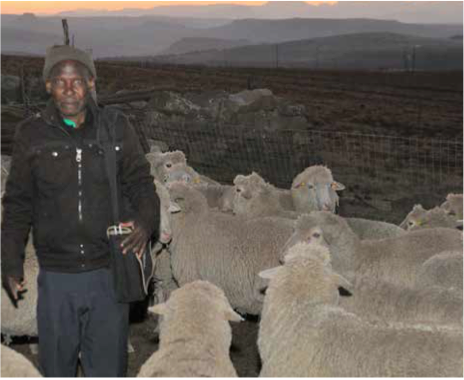 Driving to Engcobo village, 80 kilo- meters outside Mthatha requires the driving skills of a Formula One driver and the patience of a saltwater crocodile.
Driving to Engcobo village, 80 kilo- meters outside Mthatha requires the driving skills of a Formula One driver and the patience of a saltwater crocodile.
The gravel road with its sharp curves, bends like a meandering river, taking you up the ridge, where man and sheep live in harmony.
This rocky terrain is home to the dohne merino sheep, which can be seen grazing in the rich vegetation around the village or laboriously making their way to the kraal. Even in the middle of winter, the sheep look well fed and adapted to the pastures and climate of the grassveld area.
It is these sheep that provide the raw material for the Masimenyane Wool Project, a local sheep-breeding cooperative.
The centre was started 15 years ago by 30 residents of the tiny village with the help from the Department of Rural Development and Agrarian Reform.
The centre was opened to breed sheep and forge close relations among the different families in the village. The department believed that the breeding centre could be used as a model project to encourage other sheep farmers in the province.
In 2008, with financial support from the department, the cooperative built a dipping tank, installed 75 rolls of barbed wire, bought sheep handling equipment, fenced off grazing lands, and ploughed sheep feed on nine hectares of land.
When they came together, the villagers didn’t know that they were bringing about a new chapter in their lives. They were just breeding sheep for keeping and for feeding their families. Little did they know that they could make money and support their families by selling fur from the sheep.
“We didn’t have an idea that we could sell the wool and make a living out of it,” recalls Mbijana Kotyi, Chairperson of the cooperative.
With 1800 sheep the cooperative had in 1998, they produced 30 bales, making R32 000 for members, says Kotyi.
Due to lack of equipment and space, the cooperative started off cutting the fur from the kraals. The cooperative now has a proper shearing shed, a facility for shearing wool.
In 2003, the cooperative started selling wool to people in and around the Chris Hani District Municipality. Their business expanded further, with assistance from BKB AgriFin, an agribusiness organisation which helped them to access overseas markets, mainly in Australia and China. “That’s when we could start sending wool to BKB in Port Elizabeth,” explains Kotyi.
In 2007, the cooperative partnered with a non-governmental organisation called Farmers Group, with Farmers Group offering to train members in cutting fur and managing the cooperative properly. According to Kotyi, the secret to the success of the project has been the good working relationship between the members and the involvement of young people has been instrumental as well.
Today, membership has grown to 114 with 5000 sheep producing 2000 wool bales and generating R268 000. A certain portion of the proceeds is set aside in a trust for members to send their kids to varsity, says Kotyi. With the commitment and energy of the members of the cooperative, the future looks bright and the Masimenyane Breeding Centre will grow from strength to strength.
For more information call the Department of Health on: 011 355 3000
Halala to Free State female shoemakers
Halala to Free State female shoemakers sadminIn the busy industrial area of Phuthaditjhaba in Qwa Qwa in the Free State, five women have started a factory to manufacture shoes.
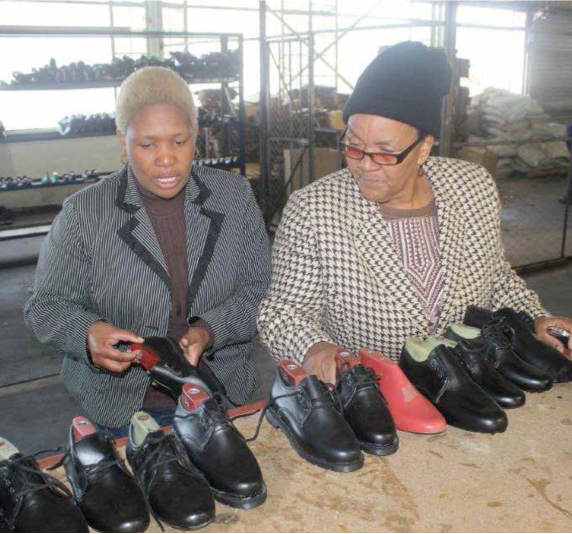 Nomvula Finger, Connie Ramooana, Nthako Moleboheng, Kitsi Rutha and Nokufa Xaba have established the Halala Basadi Cooperative to manufacture school shoes, morning slippers, sandals and now plan to make bags.
Nomvula Finger, Connie Ramooana, Nthako Moleboheng, Kitsi Rutha and Nokufa Xaba have established the Halala Basadi Cooperative to manufacture school shoes, morning slippers, sandals and now plan to make bags.
Their dream came true when they were given a grant of R3, 5 million by the Free State Department of Social Development to start their business.
Finger says in 2012 they decided to form a cooperative after receiving training on how to manufacture shoes from a local man.
“We registered the cooperative in April last year and officially started working in October after receiving funding. We received a grant of R3, 5 million which we used to buy machines, material to manufacture the shoes and the overall costs of starting a business.”
When you enter the small factory, you are greeted by the smell of glue and the sound of the machine drilling on pieces of leather.
The cooperative currently has 13 workers and three volunteers working at the factory. They explain that the idea of starting the cooperative was born when the Free State MEC of Social Development Sisi Ntombela visited Phuthaditjhaba and encouraged female entrepreneurship.
“When we did our paperwork to apply for the grant from the Department of Social Development and seeking proper premises to work from the Free State Development Cooperation, we did not think that the process would be so quick,” adds Ramooana.
Finger explains that they sell their merchandise to municipalities, marketing themselves for contracts to make school shoes.
“We also sell directly to the public and to schools. Currently we have contracts with six municipalities in the Free State.”
Ramooana says that a typical day at the co- operative starts at 8am when they begin their daily duties with a prayer and ends at 4pm in the afternoon.
“Each day we have a schedule of duties and how we separate the duties. We make roughly 500 pairs of shoes daily. We would also like to make bags as time goes on. We are very hands on in what we do. Each person is allocated du- ties in order for the business to run smoothly.” The ladies agree that business is doing well especially since the cooperative was born barely a year ago but mentorship would be greatly appreciated.
Free State Social Development Department’s head of communication and marketing Galaletsang Moncho said the R3,5 million grant given to Halala Basadi was broken down and given to them in phases. The department initially gave Halala Basadi R2 million to purchase shoe production machines which was the first phase of the funding. “They were again allocated R800 000.00 to procure shoe making material as well as to pay stipends to members of the factory. They are to be funded R700.000 as the last phase of the funding of the R3,5 million.
Moncho says these women were funded after they were identified during a household profiling exercise conducted in the Maluti a Phofung Local Municipality and were found to be unemployed, unskilled and with no means of survival.
“The starting of this factory created employment opportunities for women in that municipality. These women knew nothing about shoe production but this project has given them a life term skill.”
She says people wanting to be assisted by the department should go to the nearest offices of the department in their communities. Each district in the province has a district office as well as a few local offices.
The ladies of Halala Basadi Cooperative are in the processes of getting their shoes approved by the South African Bureau of Standards.
“We would also like to have other small factories around the country as a way of expansion.”
The ladies say their message for other women is to stick together and work hard.
“We are very happy to have received the assistance from taxpayers and the government but it is equally important that women work hard and not fold their arms waiting for handouts,” says Ramooana.
The funding of initiatives like Halala Basadi Cooperative is made possible by the tax revenue collected by the South African Revenue Services.
The orphan who found his calling at sea
The orphan who found his calling at sea sadminAfter losing both his parents at an early age, the future looked bleak for Philisane Ncane with no one to look after him. The then 21-year- old soft spoken and humble young man left his hometown of Port Shepstone for the ‘big city’ of Durban to pursue his dreams.
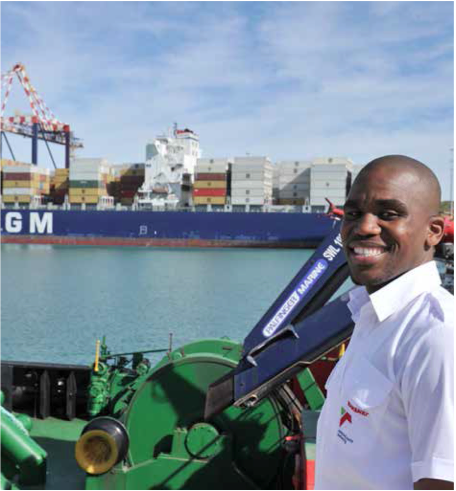 When he arrived in Durban, he didn’t know anyone. He survived by foraging in dustbins and sleeping on the streets for two months. The time he spent on the streets of Durban was very difficult and prepared him for bigger things to come.
When he arrived in Durban, he didn’t know anyone. He survived by foraging in dustbins and sleeping on the streets for two months. The time he spent on the streets of Durban was very difficult and prepared him for bigger things to come.
Ncane’s life took a turn for the better when he was offered a bursary by Transnet National Port Authority (TNPA) to enroll for maritime studies. He is now a tug master at the newly built Port on Ngqura in Port Elizabeth and has a team of seven people that reports to him.
Ten years after leaving home, Ncane is responsible for berthing vessels as big as 380 metres carrying over 100 containers, a job that needs meticulous planning, he says. “You can’t afford to make a mistake especially when it comes to time and proper planning.”
Ncane is one of the beneficiaries of the TNPA training programme that was established in 2009 to meet the demands of a new port and to transfer skills to young people coming from disadvantaged backgrounds. Like many other young people drawn from poor and rural backgrounds, Ncane says his journey to his position was filled with trials and tribulations.
He completed his matric in 2002 and did his electrical engineering certificate at Umlazi College but could not complete the cause because he didn’t have the money to pay for his studies. In 2004, he applied for a bursary at Transnet and was called for an interview the following year where he was chosen to be part of the training programme.
Transnet Corporate Affairs Manager Sindie Ndwalaza says the training programme has helped and increased the skills and human resource at the newly built port. When it started in 2009, the port had only one shift creating doubt about its viability.
Since it was launched, the TNPA training programme has trained 283 young people in different skills in line with the operation of the port.
“We have trained technicians, engineers, crane operators, maintenance crew and fitters in partnership with different companies, such as Liebherr. They provided training for crane operators.
“When we started there was talk that this port would become a white elephant, but look at us now, we are a fully operational port with more than one shifts”.
With a smile, she says she recalls the first cargo container by renowned Italian shipping giant Mediterranean Shipping Company (MSC). “MSC was one of the companies that showed a lot of faith in us and we are proud of what we have done so far”.
Ncane urged young people to work hard and never give up on pursuing their dreams. “Hard work and dedication will make you realize your dreams.”
Chrysalis Academy rebuilds troubled lives
Chrysalis Academy rebuilds troubled lives sadminThe Chrysalis Academy in the Western Cape, is transforming troubled teens into confident young adults, through its massive developmental programmes.
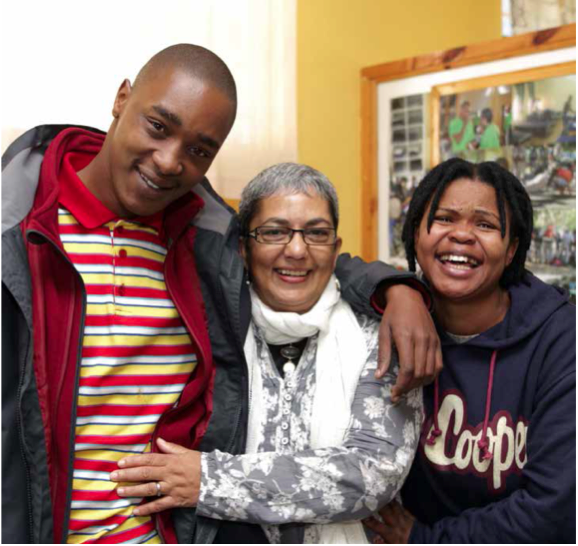 Founded by the provincial Cabinet in 2000 and funded by the Western Cape departments of community safety, education, cultural affairs and sport, social development, transport and public works, the academy which is situated on the Porter estate in the suburb of Tokai, is a beacon of hope and offers youngsters the chance to turn their lives around.
Founded by the provincial Cabinet in 2000 and funded by the Western Cape departments of community safety, education, cultural affairs and sport, social development, transport and public works, the academy which is situated on the Porter estate in the suburb of Tokai, is a beacon of hope and offers youngsters the chance to turn their lives around.
According to Academy CEO Lucille Meyer, many youngsters who enter the Chrysalis process are disconnected. They are withdrawn, vulnerable, some have resorted to using drugs, and many come from abused households.
The academy’s aim is to tackle substance abuse and the gang culture that is rife in Cape Town’s disadvantaged communities. Each year, the academy hosts two all-boy and one all-girl empowerment training programmes which run for three months at a time. The programme focuses on the physical, emotional, mental, energetic and spiritual development of learners. To qualify, learners have to be between the ages of 17 and 25, have a minimum of a Grade 9 pass, have no criminal record and be unemployed.
The programme is carried out in four stages: The Orientation Phase teaches learners to adapt to the daily routine. Here they set goals for themselves and commit to learning. The Outdoor Phase exposes learners to the outdoors to test their strengths, limitations and weaknesses while developing leadership and teamwork skills; The Skills Phase places learners in the classroom with a range of different subjects from Sports Coaching and Woodwork to Hairdressing and Cookery; and lastly The Community Phase is where learners are prepped for the real world outside Chrysalis and equipped with career guidance and life orientation skills.
Since the programme started 13 years ago, approximately 6000 learners have emerged from the Chrysalis empowered to face life’s challenges. This is why the Academy has become one of the most successful youth development organisations in South Africa, with applications from hundreds of thou- sands of learners each year.
Two such learners who have totally transformed their lives are Patrick Stungwa from Mitchells Plain and Zama Thasana from Philippe East. Both aged 26, they are now interns at the Chrysalis Academy and have become ambassadors for change in their respective communities.
Stungwa, who completed the programme in March this year, says Chrysalis has truly changed his outlook on life. “Before I came to Chrysalis I used to just do things without thinking, with my actions often getting me into trouble, but now I take time to process decisions and make the right choices in life.”
With a keen interest in office administration, Stungwa was awarded the Academy’s internship and now works at the admin office on the premises. “Chrysalis has given me the tools to dream and achieve something with my life,” he says.
Bubbly and confident Thasana, who completed the programme last year, says she was a short tempered angry teenager until Chrysalis taught her the art of self-control. “At first I was scared when I started at the Academy. I did not know anyone and I was troubled. Today I have lifelong friends that I met at Chrysalis and I have found purpose in my life. Who knows where I would be without this programme.”
Thusana excelled in fire-fighting and says the skills she learnt helped her save lives in her township. “Living in a township, many people use candles for light and shacks burn down almost every week. What I learnt at Chrysalis saved my life.” She now advocates fire safety and prevention in her community.
Due to the success of the programme, other provincial departments, like Kwa-Zulu-Natal and Gauteng, have approached Chrysalis to train and teach their staff to begin the same programme in their respective provinces.
Eleven youth facilitators have graduated and are now ready to roll out the first programme in KwaZulu-Natal. Gauteng is set to roll out the programme by next year.
For more information on the Chrysalis Academy call: 021 712 1023
Dream of healing becomes a reality
Dream of healing becomes a reality sadminYouth matters
Since childhood, Leepile Reamogetse Taunyane knew that one day his hands would heal people and he would make a contribution to improving the country’s healthcare services.
Taunyane, from Mafikeng in the North West, completed his Grade 12 in 2008 and wanted to study medicine. Unfortunately, he didn’t meet the criteria required at some medical schools and could not get in.
Determined to fulfill his dream, the 22-year-old decided to study at the University of North West, where he did a Bachelor of Science in Biology and Chemistry Junior Degree, as well as Honours in Molecular Microbiology to improve his chances of being accepted to medical school.
After applying for a few years to get into the South African-Cuba Medical Students Training Programme, Taunyane was finally accepted this year and will be among the 1 000 students who will jet off to Cuba in September.
“It’s something I always wanted and I knew that one day, I would get a chance. My goal was to go into medicine, hence the degrees I did were more in line with the medical field. They offered a better chance to be accepted to any medical school. I wanted to boost my marks with university marks because I knew my potential and it improved my chances,” said an elated Taunyane.
Asked how prepared he is, especially considering that he will have to spend a year learning in Spanish, a confident Taunyane said he has been preparing for this day and has been doing research for the past few years.
“I’m more prepared now than I was after matric because I have had a few years to prepare while in university,” he said.
He commended the Health Department for this positive initiative. However, he stressed that the outcome rests on the students themselves, who will have to work hard and perform to the best of their abilities.
Making a difference
Taunyane said the main healthcare challenge facing his community is the unavailability of ambulances.
“Maybe one can raise this with the department and as a doctor, look at this issue and offer a way to address it.
“One can come up with a strategy, offer mobile clinic services that can be available nearby where people live. I believe that you have to experience certain instances in order to address them,” Taunyane said.
New hospital brings health and prosperity to Mdantsane
New hospital brings health and prosperity to Mdantsane sadminInfrastructure
From 2017, the people of Mdantsane township in East London will have a top class healthcare facility.
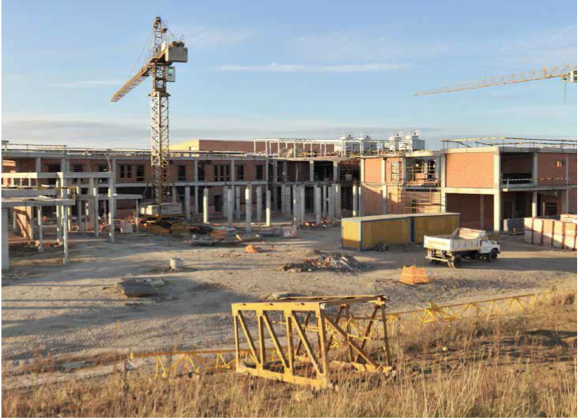 The sprawling township, which is the second largest township in South Africa after Soweto, will boast a state of the art hospital, combining different units in one building
The sprawling township, which is the second largest township in South Africa after Soweto, will boast a state of the art hospital, combining different units in one building
Chief Executive Officer (CEO) of the hospital Dr. Mtandeki Xamlashe, says the new facility is being built to meet the growing demand for healthcare in line with the standards of healthcare stipulated in the new policies of the Department of Health. The new hospital is across the road from Cecilia Makiwane Hospital, which will be demolished once the new hospital is up and running.
“This will be more than just a hospital. It will be an institute,” Xamlashe explains.
The hospital will be one of a few in the country to bring together various healthcare components in one complex. It will have a nursing college, accommodation for nurses and doctors, emergency medical services, general surgery, a TB unit, maternity wards, accident and trauma unit, intensive care unit, orthopedic surgery, 630 beds (530 specialist beds and 100 mental health), a TB unit with 700 beds and other standard medical divisions. According to Xamlashe, with the health service delivery model shifting towards primary healthcare, more resources are being allocated to the prevention and early detection of diseases. “The new focus is on dealing with the diseases while they are still in early stages.”
He adds that this focus will minimize the hospital’s dependence on institutions of higher learning for training nurses as the nursing college will train and feed the hospital with staff. Construction of the hospital started in 2011. The hospital will service the communities of Mdantsane, East London, Queenstown and surrounding areas. Xamlashe adds the name of the hospital is likely to change to reflect its various units.
Job creation for the community
The new hospital will not only have a positive impact on the healthcare in and around the Mdantsane area, it will also have economic spinoffs and create jobs for the community.
The CEO is happy that the construction of the new hospital is bringing economic activity to this area. From the R2.1 billion allocated for the construction, a portion has been set aside for procuring goods and services from the local community of Mdantsane.
“Mdantsane is the first point of contact for all the services that we need. R300 million has been set aside for procurement of services from local business people. Local businesses gets preference, we will only go out for ser- vices from other businesses when we don’t get what we need in Mdantsane,” he explains. The hospital has started a partnership with the regional Department of Labour to train young people from Mdantsane in bricklaying, carpentry and welding. Various institutions of learning also send their graduates to do their training at the hospital.
Xamlashe expresses confidence that the new hospital will improve the health and economic well-being of the people of Mdantsane and surrounding areas.
Eastern Cape Department of Health call: 040 608 1000
Eskom powers ahead with electricity infrastructure
Eskom powers ahead with electricity infrastructure sadminInfrastructure
Following delays in the construction of Medupi power station, Eskom is taking steps to ensure that its Build Programme remains on track.
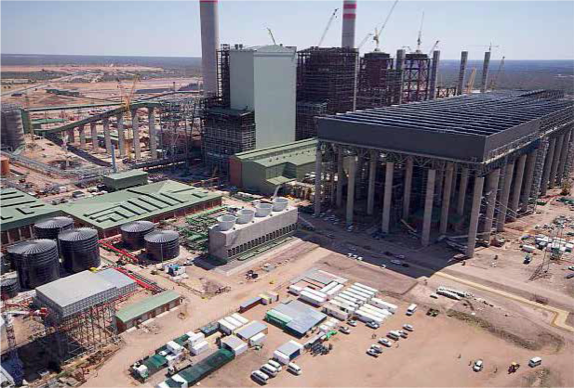 Eskom CEO, Brian Dames announced recently that Medupi, under construction in Limpopo province, was unlikely to deliver its first power to the country's grid by the end of this year as planned. The delays have been blamed on disputes with its workforce of 17 000 and "underperformance" by some of the contractors.
Eskom CEO, Brian Dames announced recently that Medupi, under construction in Limpopo province, was unlikely to deliver its first power to the country's grid by the end of this year as planned. The delays have been blamed on disputes with its workforce of 17 000 and "underperformance" by some of the contractors.
Eskom said last that Medupi would start producing power from the middle of next year. Public Enterprises Minister, Malusi Gigaba, has now instructed Eskom to provide him with mitigation strategies to ensure that the supply of electricity will not be interrupted by these delays.
The government had "noted the interventions that the Eskom board and executive management have put in place to ensure that there is no further delay to the delivery of power to the grid", the Department of Public Enterprises said in a statement.
Following the instruction from the minister, the Eskom board has established a sub-committee focusing on the mega projects which includes Medupi, Kusile, Ingula and 765 transmission lines.
“The board sub-committee is to closely monitor progress and to report to the minister regularly of any emerging risks that may require his attention and intervention," said the department.
Medupi is a coal-fired power plant project comprising of six 794 Megawatts (MW) units rated at 4 764 MW.
Additional power stations and major power lines are being built on a massive scale to meet rising electricity demand in South Africa. Es- kom's capacity expansion budget up to 2013 stood at R385 billion and is expected to grow to more than a trillion rand by 2026. Ultimately Eskom will double its capacity to 80 000MW by 2026.
Since the programme started in 2005, an additional 4453.5MW has already been commissioned. The plan is to deliver an additional 16 304MW in power station capacity by 2017.
In 2008 Eskom awarded contracts worth about R31,5 billion for its Kusile Power station, a coal- fired power station being built near Emalahleni in Mpumalanga. This station is expected to be completed in late 2016.
According to Eskom, the station will consist of six units each rated at approximately 800 MW installed capacity giving a total of 4800 MW. This will make it one of the largest coal-fired power stations in the world, once finished. The first unit is planned to go online in December 2014. Kusile will be the first power station in South Africa to have Flue Gas Desulphurisation (FGD) installed. FGD is a state-of-the-art technology, used to remove oxides of sulphur, such as sulphur dioxide, from exhaust flue gases in power plants that burn coal.
The Ingula Pumped Storage Scheme is under construction in Drakensberg mountains, straddling the Free State and KwaZulu-Natal provincial borders. It is a series of underground pump turbines, and tunnels 4.6km long which will link the Bedford Dam and the Bramhoek Dam to deliver 1332MW of hydroelectricity in the next 18 months.
Medupi, Kusile and Ingula are expected to generate a combined 3820MW of electricity by 2015, alleviating the crippling power shortages that South Africa has had to endure since 2008.
Gender equality marches on
Gender equality marches on sadminSouth Africa is set for a massive boost in science with the recent announcement that the country – together with eight African partner nations – will host the majority of the Square Kilometre Array (SKA) telescope project.
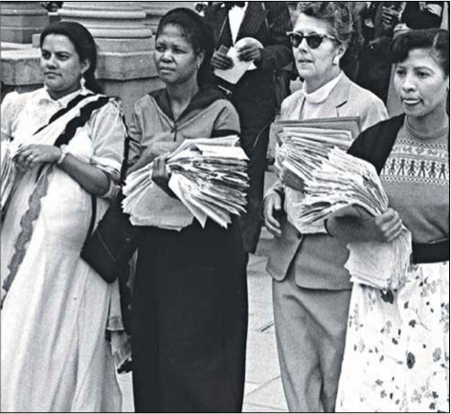 The World Economic Forum’s Global Gender Gap Report 2012, puts South Africa in the fourth position world- wide for the greatest number of women in Parliament.
The World Economic Forum’s Global Gender Gap Report 2012, puts South Africa in the fourth position world- wide for the greatest number of women in Parliament.
Before 1994, the South African Parliament had a mere 2,7% representation of women. After the 2009 national elections women representation reached 42%. Furthermore, 41 per cent of ministers, 45 per cent of deputy ministers and 55,5 per cent of premiers are women
South Africa has also made progress with the number of women employed in the Public Sector. Since 1994, there has been progressive change for women, who now occupy more than 35% of senior-level jobs in government. The 2011 Business Women Association (BWA) South African Women in Leadership Census noted that 62,5% of women who are in salary levels 13-16 are black, 7,5% are Asian, 7,2% are coloured and 22,7% are white.
In salary level 6-8, where the majority of women in government are employed, 77,2% are black, 2,5% are Asian, 8,3% are coloured and 12,0% are white.
President Jacob Zuma says government has placed the liberation of women on top of its agenda. “Even in this period of freedom and democracy, women’s emancipation must form an integral part of the political and the socio-economic transformation programme of our country.”
The Department of Women Children and people with Disabilities has been instrumental in tackling the challenges facing women, reducing poverty and improving the socio- economic status of women in the country.
It recently proposed policy in the form of the Women Empowerment and Gender Equality Bill to enforce gender parity across all sectors of our society.
The policy demonstrates government’s commitment to act decisively and enforce change in the workplace, and speed up the process of gender transformation in our country.
It calls for equal participation of women in the economy and for equal representation of women in positions of decision-making in both private and public sectors.
The policy further provides for the elimination of all practices that violate the rights of women in terms of social, political, economic and cultural freedoms and the abolition of all forms of discrimination against women and girls.
The policy monitors all legislation to address inequalities, discrimination against women, gender violence, access to services and economic empowerment.
Tackling violence against women
With regards to better services for women, there is the re-establishment of the Family Violence, Child Protection and Sexual Offences (FCS) units in all the 176 policing areas. These units conduct specialised investigations in the detection of all cases of sexual offences, domestic violence and child abuse.
Government is using its investment in education as a critical emancipation tool for women and girls.
Moreover, between 2001 and 2009 women enrolments at doctorate level increased to four out of every ten, and women graduations increased from three to four of ten.
In clinics and hospitals, women receive greater support from government than ever before.
Through the revitalisation and building of more Primary Health Care (PHC) facilities the government has improved access to health- care services for many women and children, especially in rural areas.
The health system also includes post-rape care and counselling at health facilities.
South Africa’s record of the last 19 years of democracy suggests that the country can build on the advances it has made which have enabled women to make better lives for themselves and their children.
New houses restore dignity of Danville residents
New houses restore dignity of Danville residents sadmin
After spending 11 years without a fixed accommodation, Magda Croukamp and her fiance Jacob Kroen are proud new homeowners.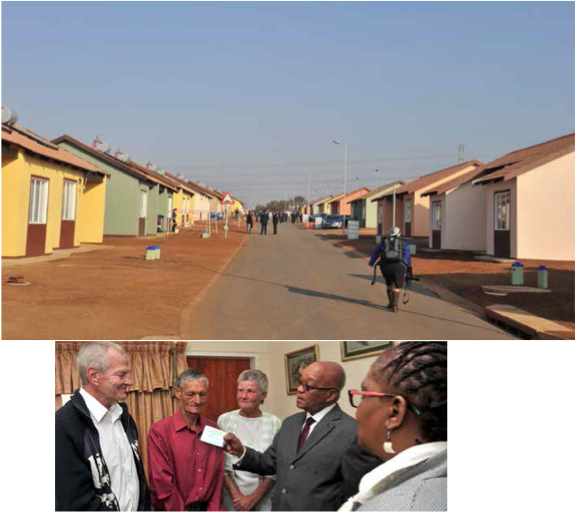
The couple had settled at the Bethlehem Informal Settlement in Pretoria, the area also known as Hermanstad, after moving from one place to another for years.
Their plight came to the attention of President Jacob Zuma when he visited the area in July 2008, and he promised to help.
The President listened attentively as com- munity members like Croukamp related how homelessness had affected their lives. Croukamp told of how they were forced to sleep on the streets and had been robbed 49 times. Following the President’s visit, 29 families were prioritised for housing in the area. Of these, 15 families, including Croukamp, have been allocated houses in what is known as the new low cost settlement project in Danville. Croukamp, Kroen and Croukamp’s brother Johan Cloete have finally moved into their new house situated at Danville in Pretoria. On International Nelson Mandela Day, Croukamp could not contain her joy when President Zuma visited the area to launch the new low cost settlement.
“We have suffered for a long time. At times people tried to kill us for our luggage and clothing. I want to thank God and the President for sticking to his word,” said Croukamp in tears.
In Danville there is a spirit of togetherness as children race down the newly built streets in their bikes.
Addressing the community, President Zuma said he was touched by the warm reception he received. “This is what we want to see happening in the country. There is a genuine expression of satisfaction; we are giving houses to all national groups. South Africa belongs to all who live in it. I am happy to see what is happening today.
Even those still waiting for their houses will get their houses.”
President Zuma was accompanied by the newly-appointed Human Settlement Minister, Connie September; Gauteng Premier Nomvula Mokonyane; Tshwane Mayor Kgosientso Ramokgopa and Local Government and Housing MEC, Ntombi Mekgwe
Of the 407 houses in the project, 110 have been completed and allocated to beneficiaries.
The Department of Human Settlement spent R103 million to build the houses. Painted in green, grey and light pink colours, the houses are fitted with cement tiles, ceiling, kitchen sink units and solar geysers.
”The President hailed Danville as a model of an integrated community.
“The settlement is a demonstration that non-racial communities can be developed in the country, in the true spirit of the rainbow nation that former President Mandela promoted.”
Deputy President Motlanthe builds houses for the homeless
Deputy President Motlanthe builds houses for the homeless sadminResidents of Chatty in the Eastern Cape were treated to the spectacle of Deputy President Kgalema Motlanthe and ministers dressed in green overalls, black work boots, white helmets and hand gloves, working alongside contractors. They pushed wheelbarrows, mixed cement and lay bricks to provide decent housing for the homeless.
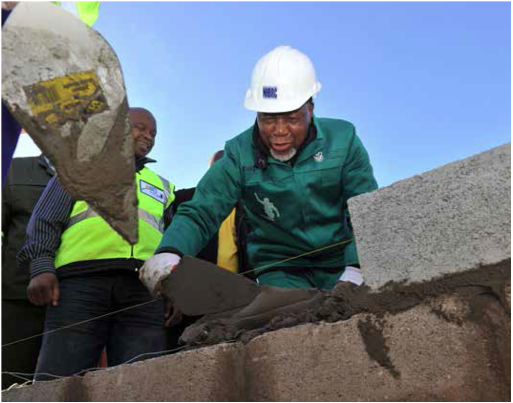 The team was on War on Poverty Campaign in and around the Nelson Mandela Bay Municipality. They built a house, renovated another one, held meetings with young people and the community and handed over a house and furniture to an elderly man.
The team was on War on Poverty Campaign in and around the Nelson Mandela Bay Municipality. They built a house, renovated another one, held meetings with young people and the community and handed over a house and furniture to an elderly man.
The fi t stop of the delegation was a construction site where they joined construction workers in building a house at stand No 12727 of Chatty.
The construction project is a partnership between the Eastern Cape Department of Human Settlements, the municipality and the Housing Development Agency (HDA). The R110 million project is expected to be completed in 2014.
Nicolas Tsweu of the HDA said there would be 1 380 new houses built between now and March 2014. Over 500 houses have been completed and occupied since construction started in September 2012. An additional 1 060 houses will be built in future.
After participating in the construction, the delegation visited the Helenville Resource Centre where they went on a walk-about to see the building progress of the centre.
After the inspection of the resource centre, they visited a newly built house in Missionvale where a family of six is set to occupy the newly built house.
The new occupant of the house, 34-year-old Mbulelo Jamela said the new house would restore his family’s dignity and enable him to raise his children in a decent home. “I’m happy with this house and we are ready to move in.” From upgrading the newly built house, the delegation visited December Jafta, a 95-year- old disabled man who had been staying alone in a house. The house was dilapidated without a bed, furniture and in “no condition to house a human being”. Various government departments contributed to the upgrading of the house.
Director General in the Presidency Cassius Lubisi said although the upgrading of the house might seem like a drop in the ocean, it would go a long way in restoring Jafta's dignity. The delegation concluded the campaign with a community meeting where community members raised issues that need government attention.
Letters to the Editor
Letters to the Editor sadminThe youth of South Africa must develop an entrepreneural mindset to be absorved into the economy. We also need skilled and empowered youth to develop our country. The future is in our hands. We must innovative and creative. Laziness must come to an end. With the help of the National Youth Development Agency, the Small Enterprise Development Agency, Khula and other organisations we can help our Government reduce the number of unemployed youth in our country. Let us strive to have our own enterprises. Vukuzenzele Moswa wa mo Africa.
John Nkoana, Mankgaile Ga-Molepo, Limpopo
To the 2013 Matriculants
Writing matric exams is a crucial stage in the development of all young people. Just remember that we are the captains of our destinies and the creators of our future. Don’t be idealistic, be realistic because nothing comes easy in life.
All our dreams can come true if we pursue them. Remember that the matric certificate alone will not be a ticket to a brighter future. As an individual go out there and make the best of your situation. Go out there and grab all possible opportunities and utilize them. The world is full of possibilities that are just waiting for you to take advantage of them. A little piece of hard work has never killed anyone.
Insist on working hard. It will pay off. Insist on praying. It will pay off. In order to achieve, you must sweat. No pain, no gain. Work hard today and tomorrow there will be a reward. Your poor background does not determine your future. Be free, be spontaneous, be brave, be you and be who you want to be.
In your future, you will have flat tyres called jobs but only if you as an individual will have a spare wheel called determination, an engine called perseverance, an insurance called faith and a driver called Jesus. You will make it to a place called success.
Phutieagae Suzan, North West
www.facebook.com/VukuzenzeleNews
Like us on Facebook and give us your comments
Send your letters to: Vuk’uzenzele, Private Bag x745, Pretoria, 0001. E-mail: vukuzenzele@gcis.gov.za.
We would like to hear from you If any of the information published in Vuk’uzenzele has helped you in any way to improve your life, we would like to hear from you. Don’t forget to include your telephone or cellphone number and address.
SA - EU fund boosts infrastructure
SA - EU fund boosts infrastructure sadminInternational relations
South Africa and the European Union (EU) have agreed on a new R 1.3 billion funding to support South Africa's infrastructure programme. The money will come in the form of grants and loans from the Development Bank of Southern Africa (DBSA) and European Development Finance Institutions.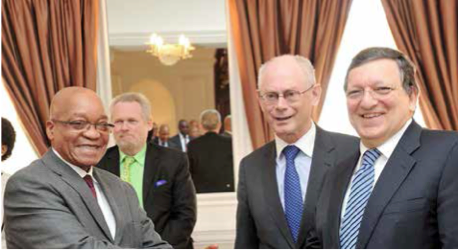
The two parties also agreed to electrify 300,000 households in rural areas. The EU will also finance development programmes that support job creation to a tune of R 650 million.
These agreements were reached at the sixth South Africa-European Union Summit held recently. The European Union remains South Africa’s largest regional trading partner. “At least 2000 EU companies have invested over R 60 billion (Foreign Direct Investment Stock) in South Africa creating over 350,000 direct jobs,” said a joint statement issued after the summit.
Between 2008 and May 2013, there were over 350 Foreign Direct Investment projects from EU into SA, amounting to a capital investment of R162.43 billion and creating 48,686 jobs. According to President Jacob Zuma, a total of 46 foreign direct investment projects from South Africa into the EU were recorded, representing a total capital investment of 10.53 billion rand. “The investments by 37 South African companies in the EU countries created a total of 2,371 jobs in the EU, spread over a diverse range of sectors.” The statement also said from 2014, European students and university staff will have the opportunity to study in South Africa under the Erasmus Mundus Scholarship Programme which has benefited 388 South African masters and doctoral students and university staff since 2011.
The agreement provides for investors from the EU to attend a conference in South Africa focusing on “the implementation of the Youth Employment Accord; and possible matching finance for youth-owned enterprises and cooperatives”. The accord involving government, labour, business and social partners was signed in April, committing the parties to boost economic opportunities for the youth.
On the sideline of the summit, South Africa also signed an agreement with the European Atomic Energy Community to cooperate in generating nuclear energy.
President Zuma welcomed the agreements reached by the two parties, saying they will help South Africa overcome its inherited challenges of unequal wealth and resource distribution, inequality, unemployment and deeply entrenched poverty.
“We are of the firm view that given these realities, the EU should continue its development programmes in South Africa, complementing as they do, the work of government, within a developmental framework.
“We look forward to a continued mutually beneficial partnership and are pleased with the fruitful discussions.”
“While we rightfully celebrate the 50th anniversary of the African Union (AU), we are cognisant of the challenges we face. The road ahead to attain peace, stability and prosperity on the African continent for all her peoples is still arduous.
“This calls on all leaders of the continent to sharpen their resolve and through the AU, raise our collective voices, and confront the challenges presented by the current global dispensation.”
SA grows ties with Vietnam as ally
SA grows ties with Vietnam as ally sadminInternational relations
As South Africa prepares to celebrate 20 years of freedom next year, it was only fi that the country hosted Vietnam recently.
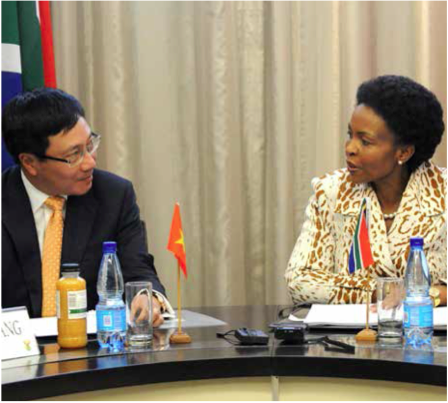
The two nations share a 20 year bond and friendship that has seen them develop deep social, economic and cultural ties.
With the recent visit by the Vietnamese Foreign Affairs Minister, Pham Binh Minh, to our shores; the long standing relationship between the two countries was taken to another level.
South Africa attaches considerable importance to its relationship with Vietnam as a staunch friend and ally.
According to South African trade figures, bilateral trade amounted to R6 billion in 2012 (up from R3,7 billion in 2011), making Vietnam South Africa’s 5th largest trading partner in South east Asia. South Africa’s trade deficit of R4,5 billion in 2012, remains substantial, more than double that of the previous year.
“We welcomed the continuing increase in the volume of bilateral trade – which reached R6 billion in 2012, up from R3,7 billion in 2011 – and we agreed that there is still substantial potential in the field of trade and investment remains unexploited.
“We noted South Africa’s considerable trade deficit and agreed that we should focus on increasing our economic interaction in a more balanced way,” explained Minister Maite Nkoana-Mashabane.
Relations between the two nations go back many years before the formal establishment of diplomatic relations in December 1993.
The Vietnam Democratic Republic and South Vietnam (later reunified with the Democratic Republic of Vietnam) were two of the 34 countries that attended the Asia-Africa Conference, also known as the Bandung Conference in 1955 in Indonesia where the South African liberation movement was represented by Moses Kotane and Maulvi Cachalia.
The Bandung Conference issued a call for world-wide disarmament and also laid down a 10-point “good neighbour” policy for peaceful co-existence among nations.
It was in Bandung that the seeds of solidarity and cooperation between the South African liberation movement and Vietnam were sown.
“Over the past 20 years, the relationship between South Africa and Vietnam has grown and solidified into a multi-faceted relationship with growing cooperation in many fields, rapid growth in people-to-people links and strong state-to-state and government-to-government relations, which includes cooperation at many levels - bilateral, as well as multilateral,” said International Relations and Cooperation Minister Nkoana-Mashabane.
Minister Minh said despite the fact that Vietnam and South Africa are geographically far apart, the two nations have been close through the destiny that they share - a long history of struggle for national identity and independence for freedom and human dignity.
“... not only in the past, but also in our cause for national construction and development today,” he said.
Since the establishment of full diplomatic relations, South Africa and Vietnam have signed a number of agreements and memoranda of understanding (MOUs) and established various structures for conducting their bilateral relations.
“South Africa is today a free and democratic country and Vietnam has become one of the fastest growing economies in the world, having halved poverty over the past 20 years,” said Minister Nkoana- Mashabane.
“Our governments face similar challenges to address inequality and alleviate poverty, and we have much to learn from each other’s experiences.”
Cooperation between South Africa and Vietnam is not limited to cooperation at central government level.
There are a number of initiatives taking place at provincial and local levels. The City of Johannesburg signed a MoU on cooperation and friendship with Ho Chi Minh City in 2009 and a twinning arrangement exists between Tshwane and Hanoi. Recently, the two signed an action plan that promotes cooperation between the two countries in law enforcement and compliance with legislation such as the Convention of International Trade in Endangered Species of Wild Fauna and Flora (CITES).
“In December 2012, we signed a MoU on Cooperation in Biodiversity Conservation and Protection and in May 2013 we signed an Action Plan that outlines joint actions up to 2017 and provides for continual re- view,” said Minister Nkoana-Mashabane. The two countries look set to deepen relations and look forward to another 20 years of healthy relations.
The agreement is designed to promote cooperation between South Africa, China and Vietnam on conservation; they are particularly aimed at curbing the current scourge of rhino poaching through cooperation in law enforcement.
World Cup legacy lives on
World Cup legacy lives on sadminSport, arts and culture
The 2010 FIFA World Cup will forever be remembered as one of the greatest achievements of post- apartheid South Africa.
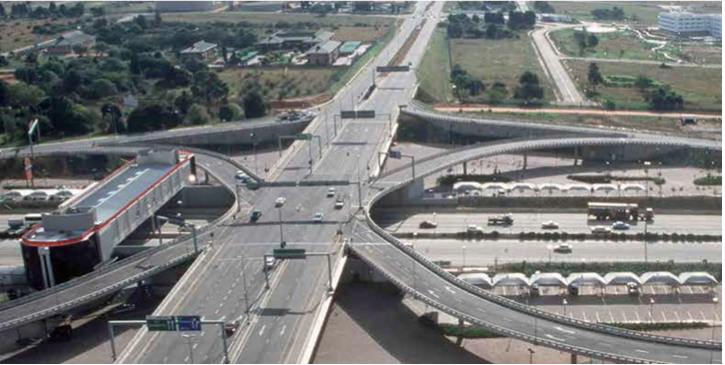 Fans of all shapes and sizes draped the flag over their shoulders; some had headscarves and others donned over- sized plastic glasses. This excitement gave birth to an amazing sense of unity that tore through the country. Racial divisions of the past were suspended, if only for the moment. The world football governing body, FIFA, gave South Africa a near-perfect 9 out of 10 for successfully hosting the global event.
Fans of all shapes and sizes draped the flag over their shoulders; some had headscarves and others donned over- sized plastic glasses. This excitement gave birth to an amazing sense of unity that tore through the country. Racial divisions of the past were suspended, if only for the moment. The world football governing body, FIFA, gave South Africa a near-perfect 9 out of 10 for successfully hosting the global event.
2010 FIFA World Cup Legacy Trust
After the tournament, FIFA and the South African Football Association (Safa) established the 2010 FIFA World Cup Legacy Trust to promote and extend the development and the reach of football in South Africa.
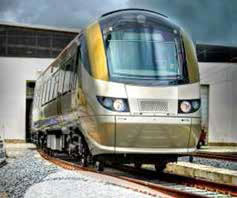 In April 2012, FIFA transferred R450 mil- lion into the Legacy Trust account which is administered by auditors Ernst and Young. It also supports education and healthcare initiatives of non-governmental organisations that use football as a vehicle for community development as well as for humanitarian assistance for those in historically disadvantaged and impoverished communities.
In April 2012, FIFA transferred R450 mil- lion into the Legacy Trust account which is administered by auditors Ernst and Young. It also supports education and healthcare initiatives of non-governmental organisations that use football as a vehicle for community development as well as for humanitarian assistance for those in historically disadvantaged and impoverished communities.
The trust’s general manager Greg Fredericks says the trust has started development initiatives in all the provinces. “The main objective of the fund is to ensure that there is quality development of football in South Africa.”
Fredericks says funding from the National Lottery has already ensured the completion of 27 of the 52 artificial football fields also known as football turfs with change rooms and ablution facilities.
 “This is the most significant project that the Lotteries have funded with arguably the best value for money of all its grassroots development projects. Football turfs are ideal because they do not need water, they are easy to maintain and they are resistant to harsh climatic conditions such as snow, drought or frost.
“This is the most significant project that the Lotteries have funded with arguably the best value for money of all its grassroots development projects. Football turfs are ideal because they do not need water, they are easy to maintain and they are resistant to harsh climatic conditions such as snow, drought or frost.
Fredericks says the trust is looking for funds to do 25 facilities in the remaining Safa regions. “We are also planning to do multi-purpose facilities for football, rugby, athletics, hockey and netball in partnership with the Sport and Recreation Department.”
According to Fredericks, the National Lotteries has promised to come on board only if local municipalities can fund 50 per cent of the costs.
He says Safa has received a cash injection of R17.5 million for the delivery of the under 13 and 15 leagues for both boys and girls in 311 local football associations and adds that the best players at provincial levels will be selected to play at the national tournament at the end of the year.
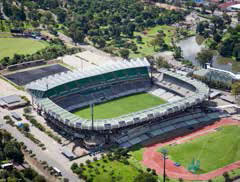 “Safa also received R8.7 million for women football, of which R5.7 million will be utilised in the Women’s regional leagues while R3 million will be used for the long term women’s development programme.” A total of R150 000 has been allocated to each of the 53 Safa regions for office equipment, training of coaches, referees and administration.
“Safa also received R8.7 million for women football, of which R5.7 million will be utilised in the Women’s regional leagues while R3 million will be used for the long term women’s development programme.” A total of R150 000 has been allocated to each of the 53 Safa regions for office equipment, training of coaches, referees and administration.
The 311 Safa local football associations will each receive R10 000 for office equipment and a further R10 000 grant for administration.
Wits University has received R317 000 for the training of emergency medical personnel to perform duty at football matches.
A total of R4.2 million has been allocated for the 20 Centres for 2010. Five of the centres are in South Africa, while the remaining are in other African countries.
Fredericks says R210 000 has been put aside for the Centres for Education and Health programmes as part of community and youth development initiatives that use football as a vehicle for development.
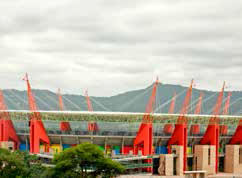 He explains that Safa regions, including local football associations, clubs and schools will receive bags containing kits, bags and training equipment to the value of R7 500 each. The first application process for funding was launched last June via the official website www.2010legacytrust.com. In January this year, the board of the 2010 FIFA World Cup Legacy Trust led by
He explains that Safa regions, including local football associations, clubs and schools will receive bags containing kits, bags and training equipment to the value of R7 500 each. The first application process for funding was launched last June via the official website www.2010legacytrust.com. In January this year, the board of the 2010 FIFA World Cup Legacy Trust led by
Chairman Danny Jordaan, approved the first 973 beneficiaries for a total amount of R56 million.
According to Fredericks, the next application phase starts on September 1 and close at the end of September.
“It will be for the financial year starting March 1, 2014 and the Board has decided to allocate R60 million, so applications will be online, but provision will also be made for hard copy applications.
SAFA technical master plan
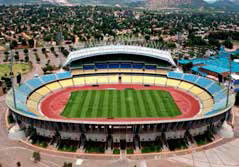 Fredericks says that the trust is also built on seven streams of success which include developing and entrenching a uniform South African National Football Philosophy, building a rich and robust talent Identification & development Pipeline that starts at U13 at a Local Football Association (LFA) level.
Fredericks says that the trust is also built on seven streams of success which include developing and entrenching a uniform South African National Football Philosophy, building a rich and robust talent Identification & development Pipeline that starts at U13 at a Local Football Association (LFA) level.
The Master Plan seeks to transform foot- ball from the ground up over the next ten years and also does the following:
- Build and administer a comprehensive national Competitions Framework built on a foundation of licensed and developed clubs;
- Train and deploy sufficient coaches to create a 1:20 ratio of coach to players (150 000 coaches in ten years or 15 000 per annum);
- Upgrade Football Infrastructure and Administration at all levels;
- Identify and utilise the best technology at all levels; and
- Utilise the best researched and most up to date practice of Sports Science and medicine to ensure full development of players.
Fredericks is confident that in the next 20 years South African football will flourish as the trust would have produced a massive pool of talented football stars.
“As we mark 20th anniversary for freedom and democracy next year, it will be important to celebrate the hosting of the FIFA World Cup, which has already started to change the lives of our people.”